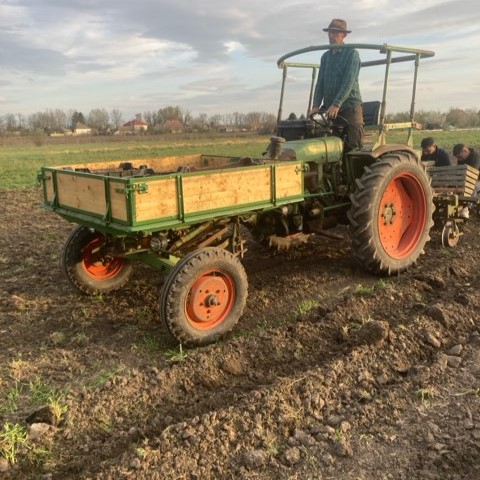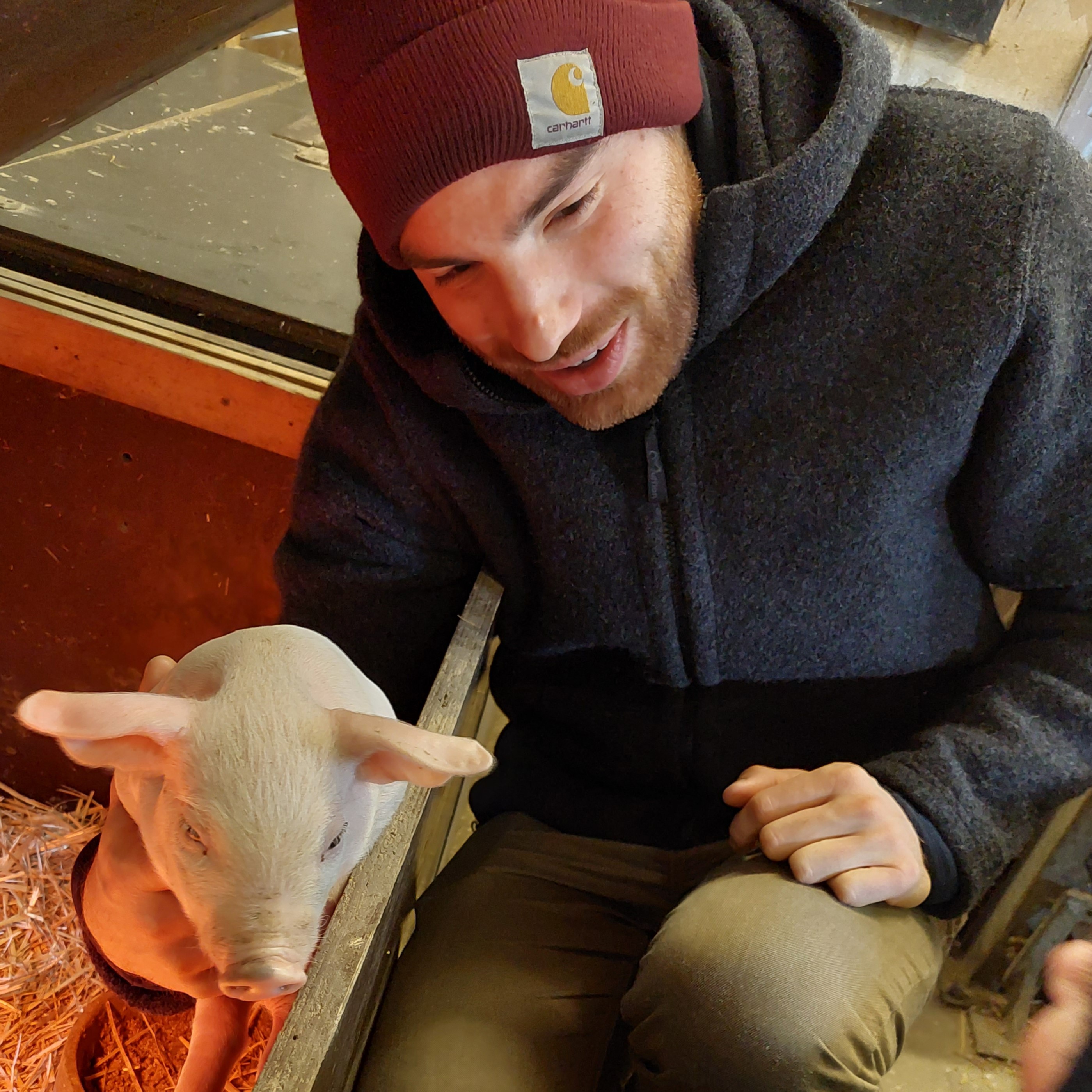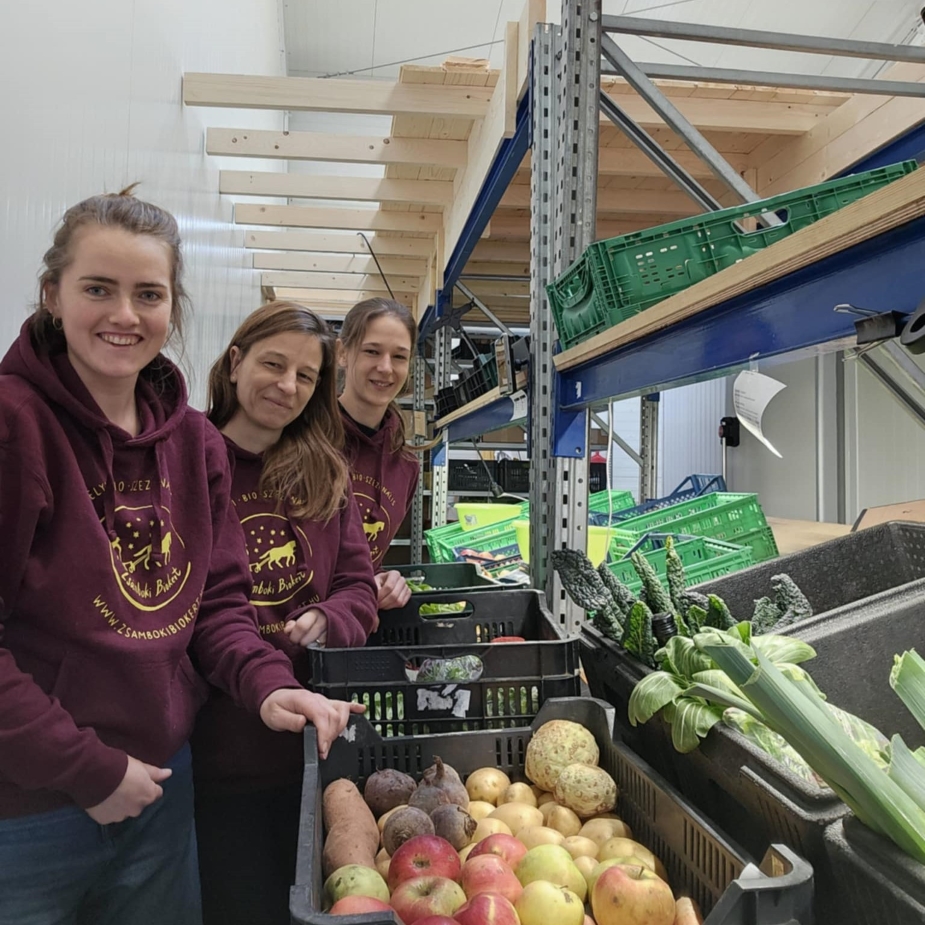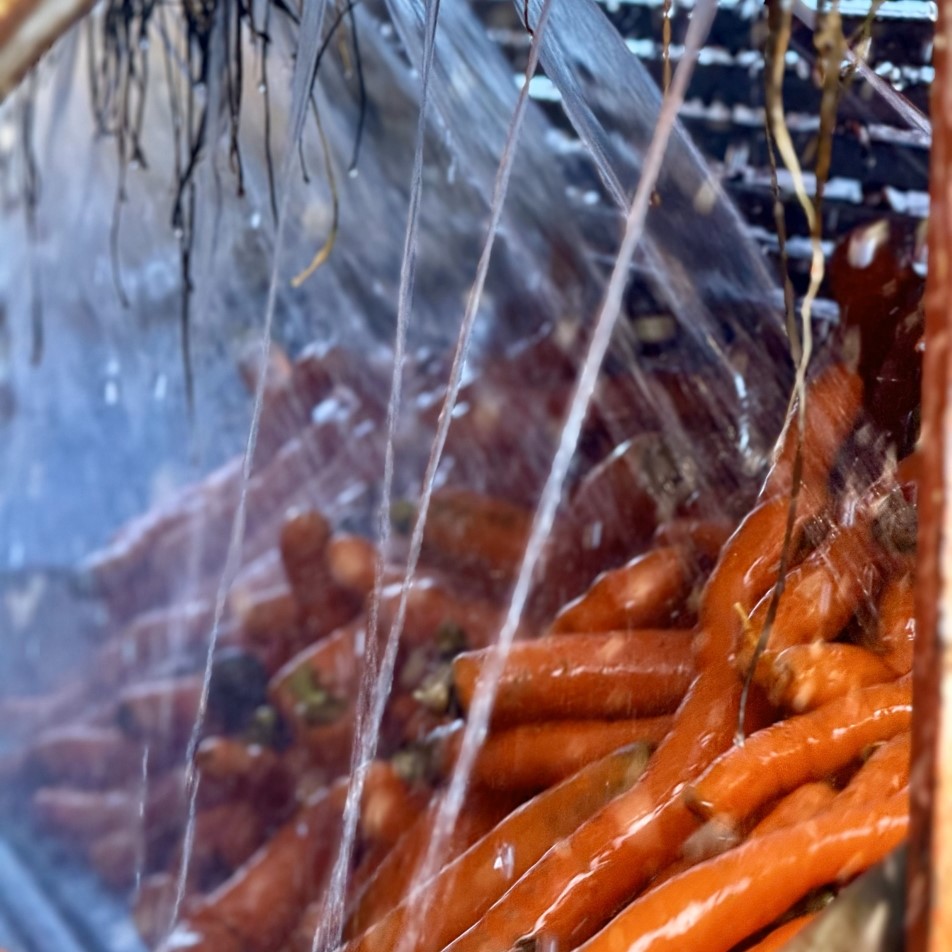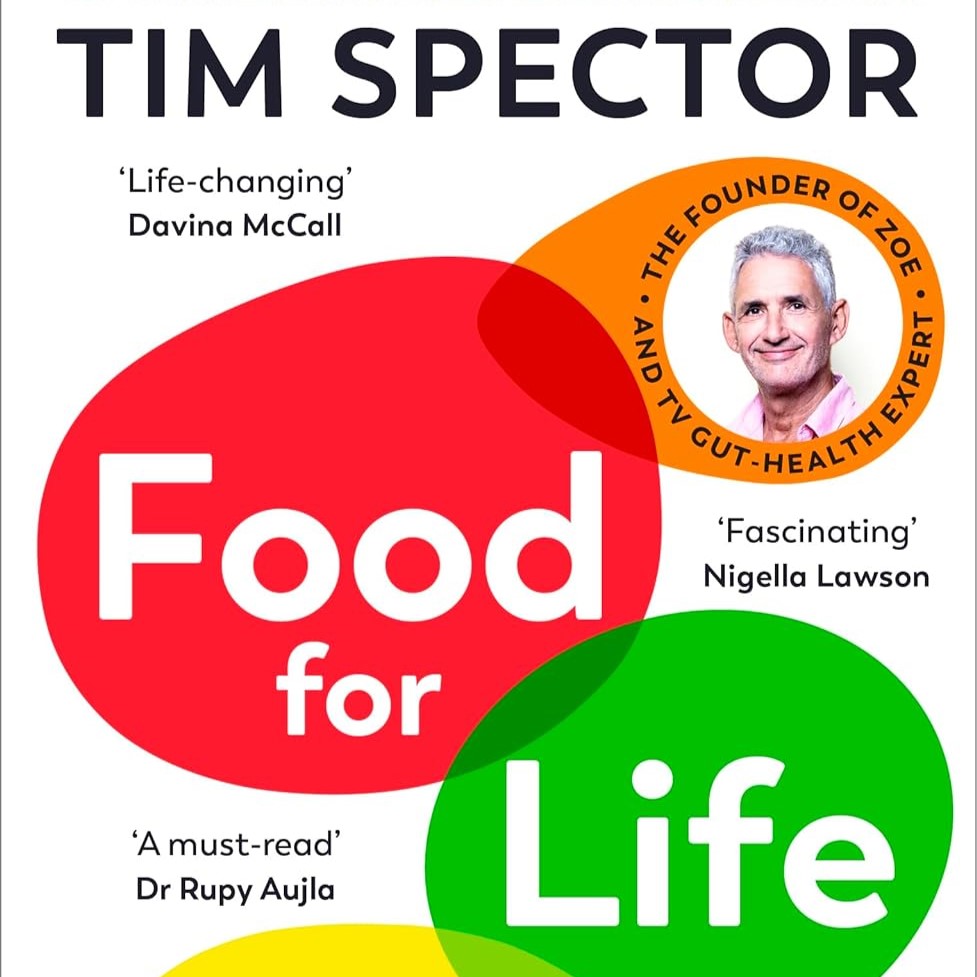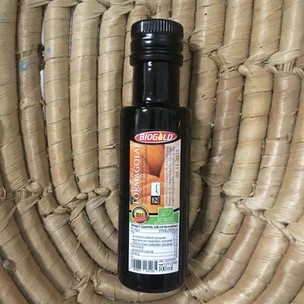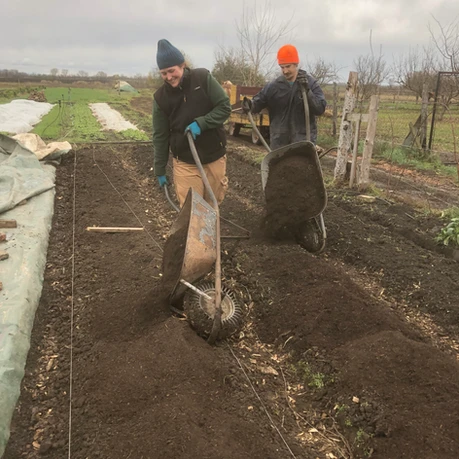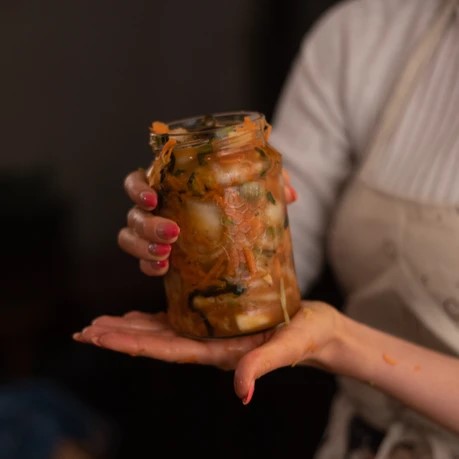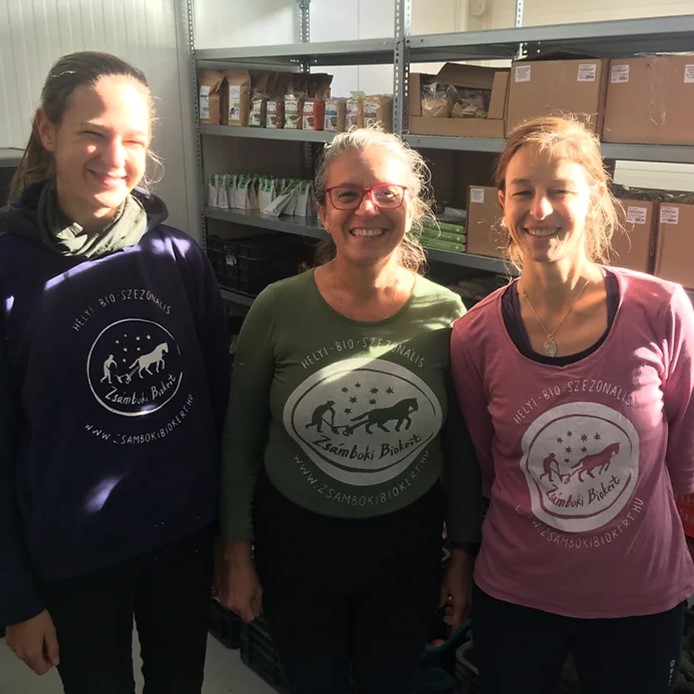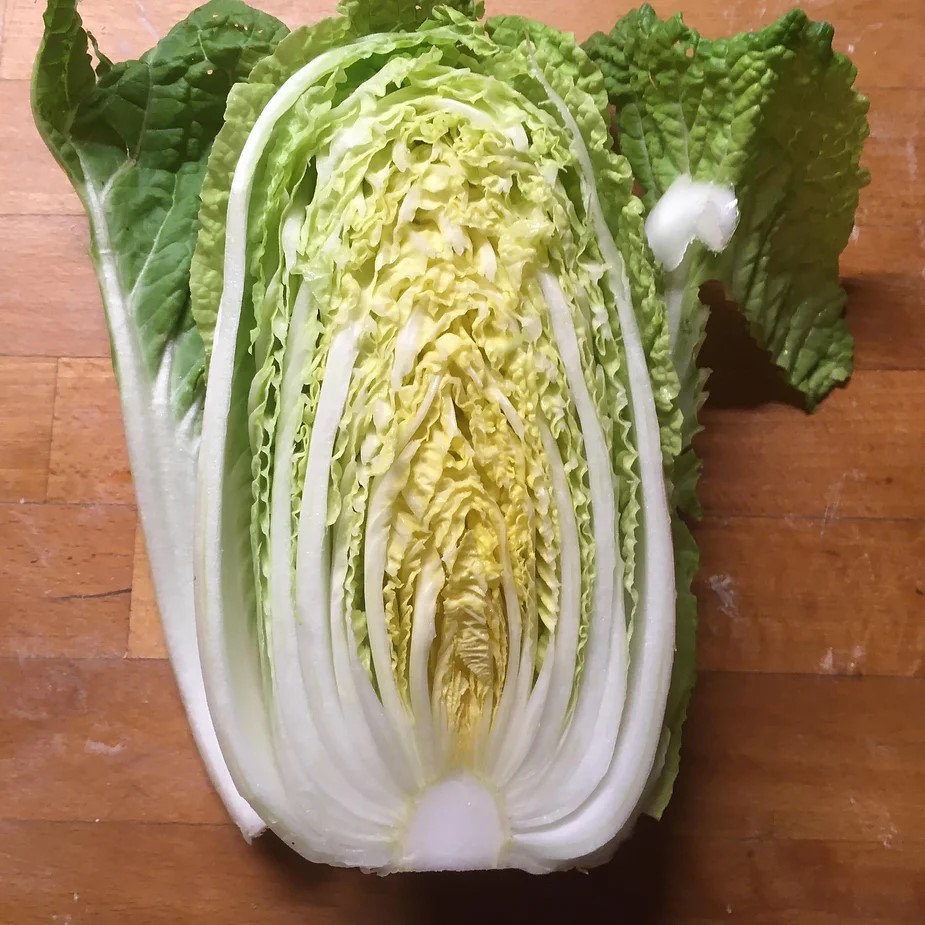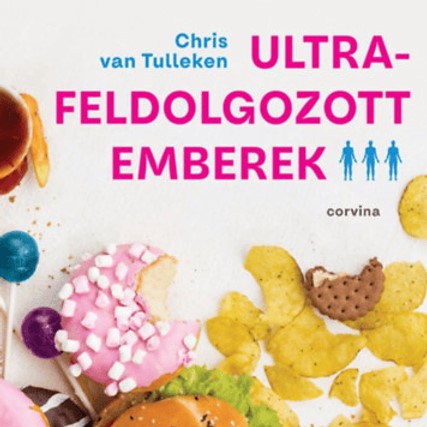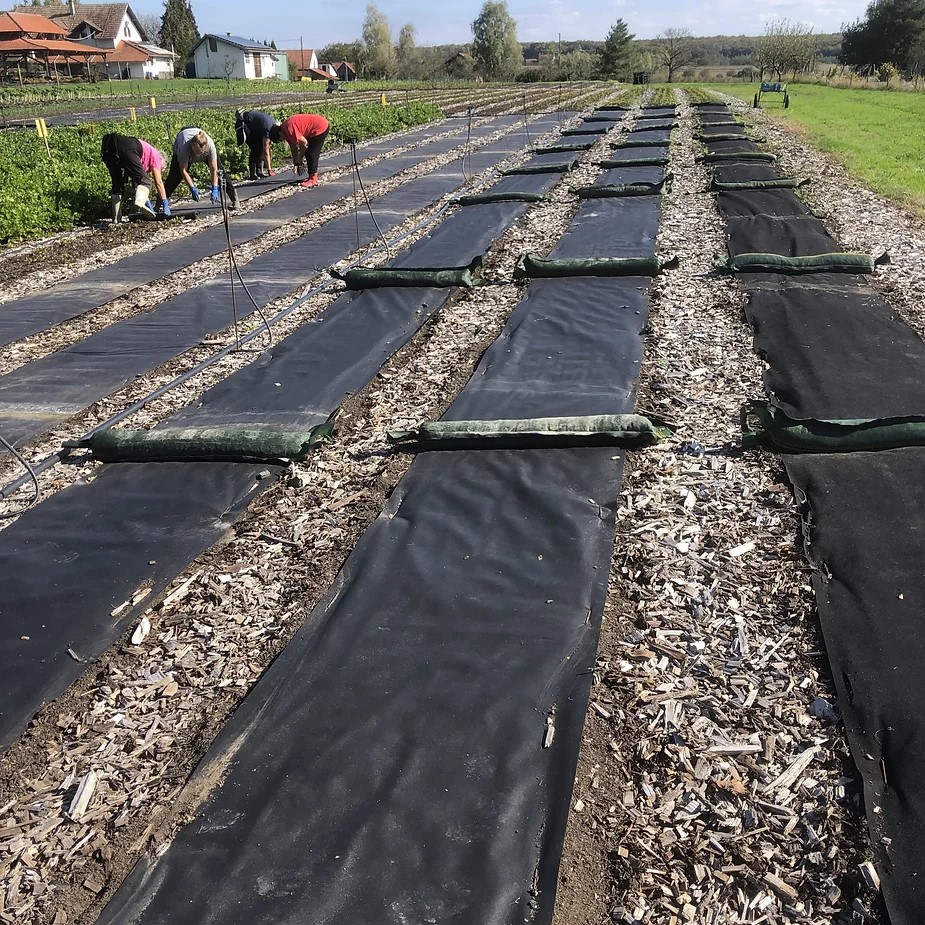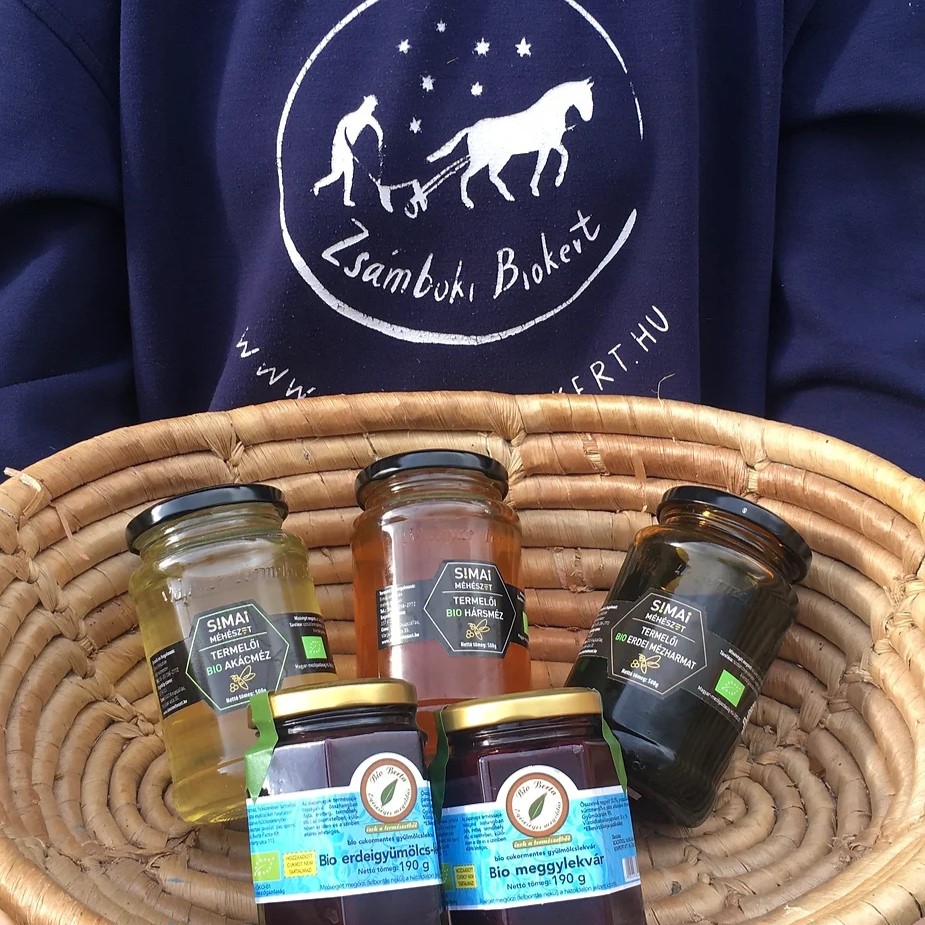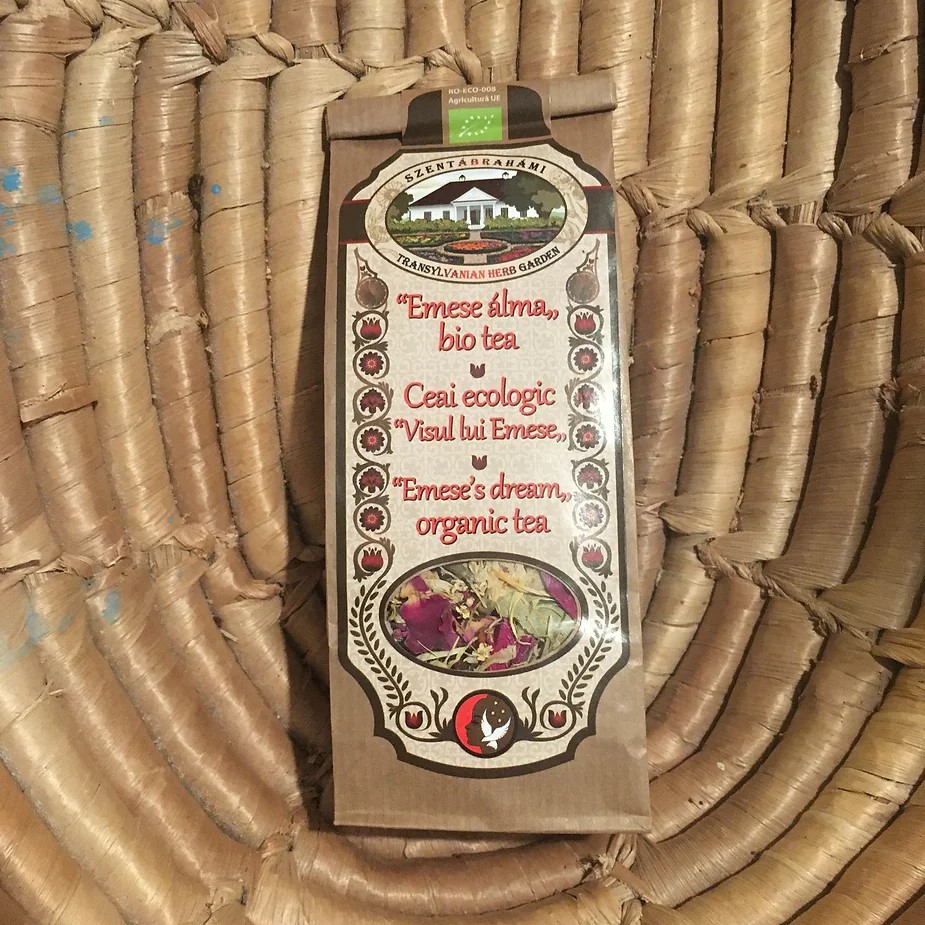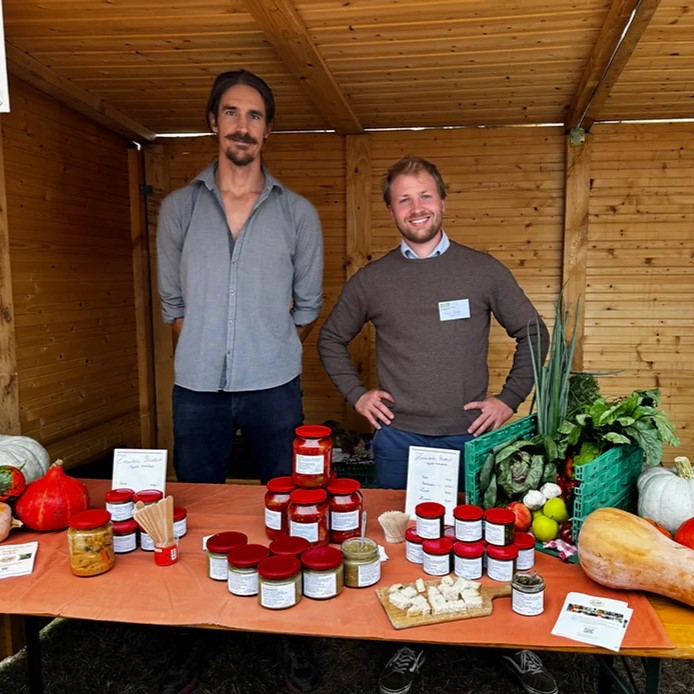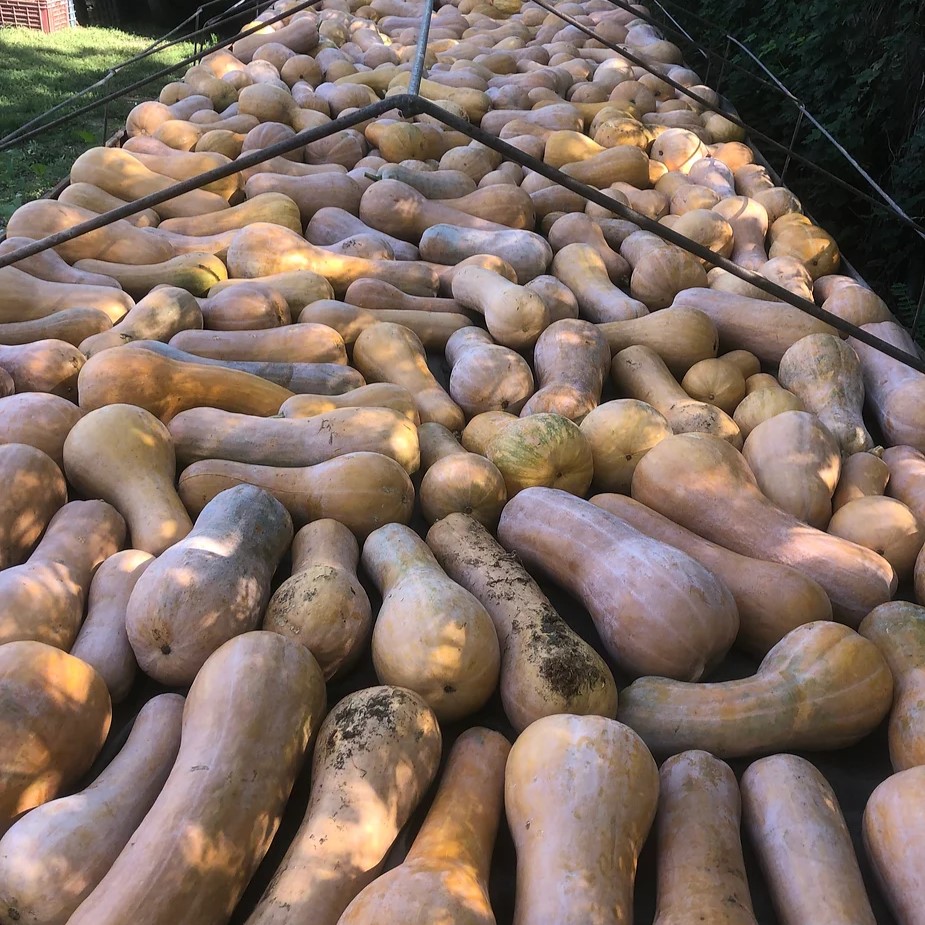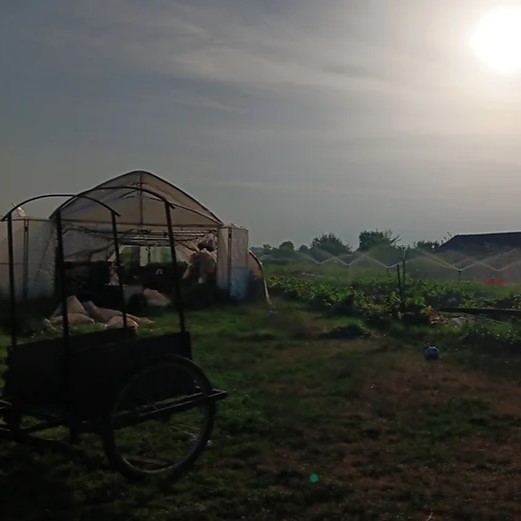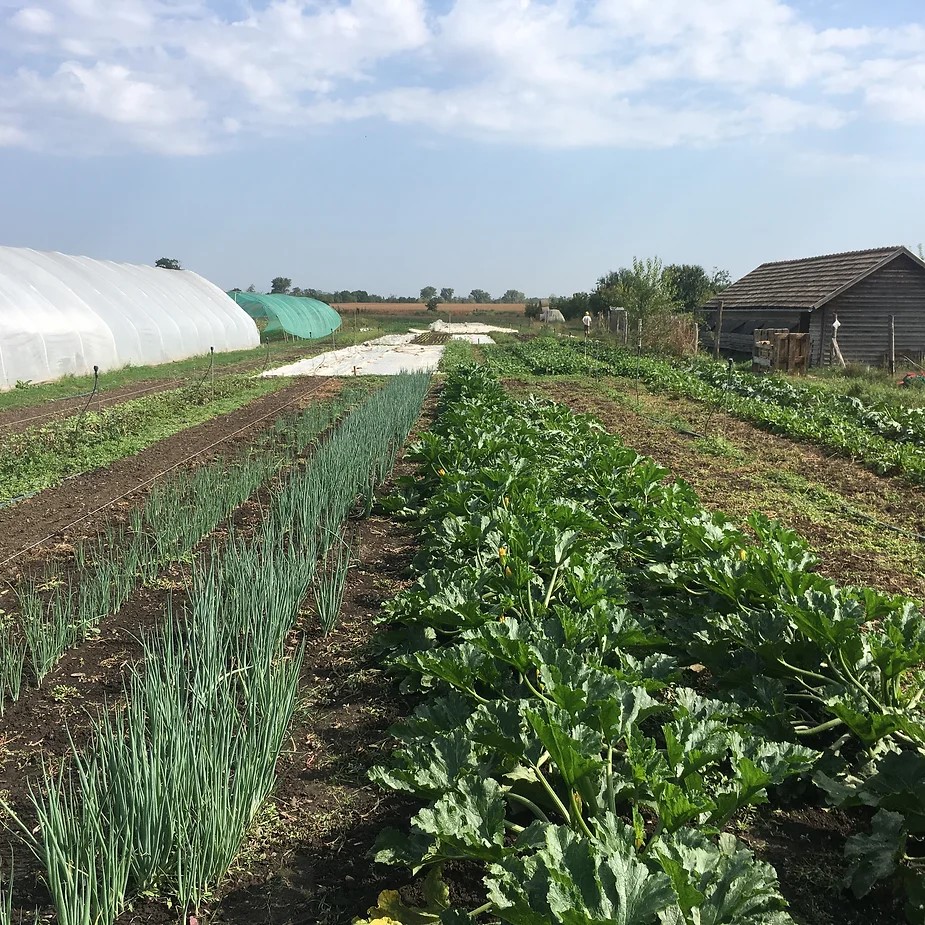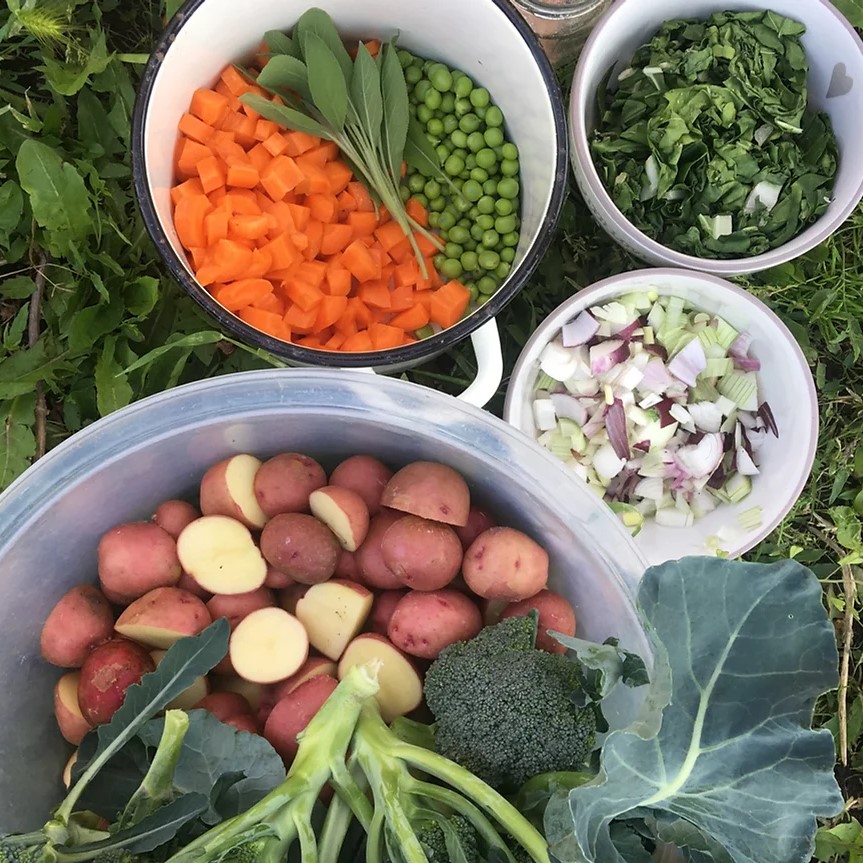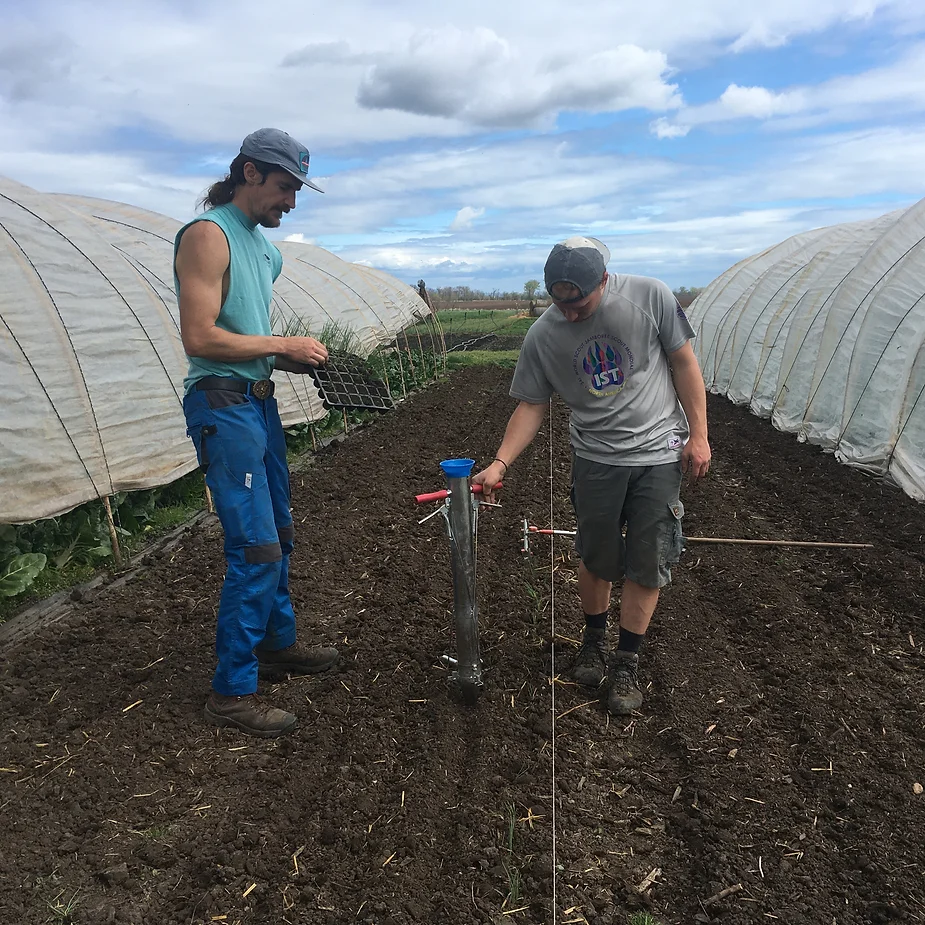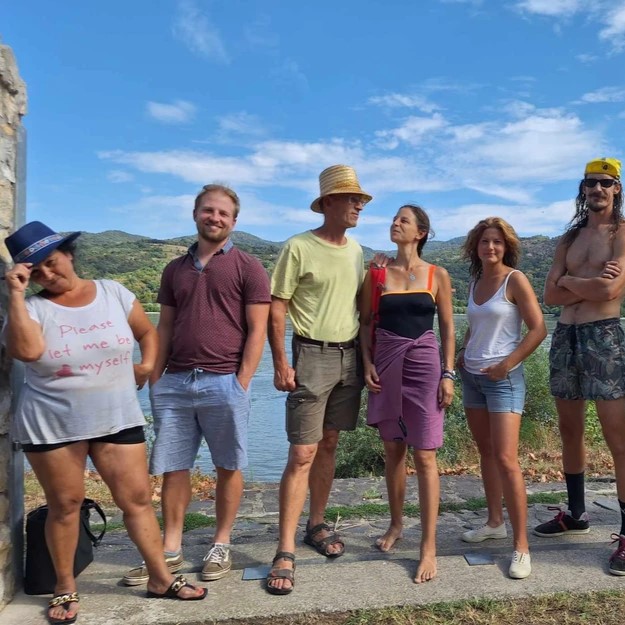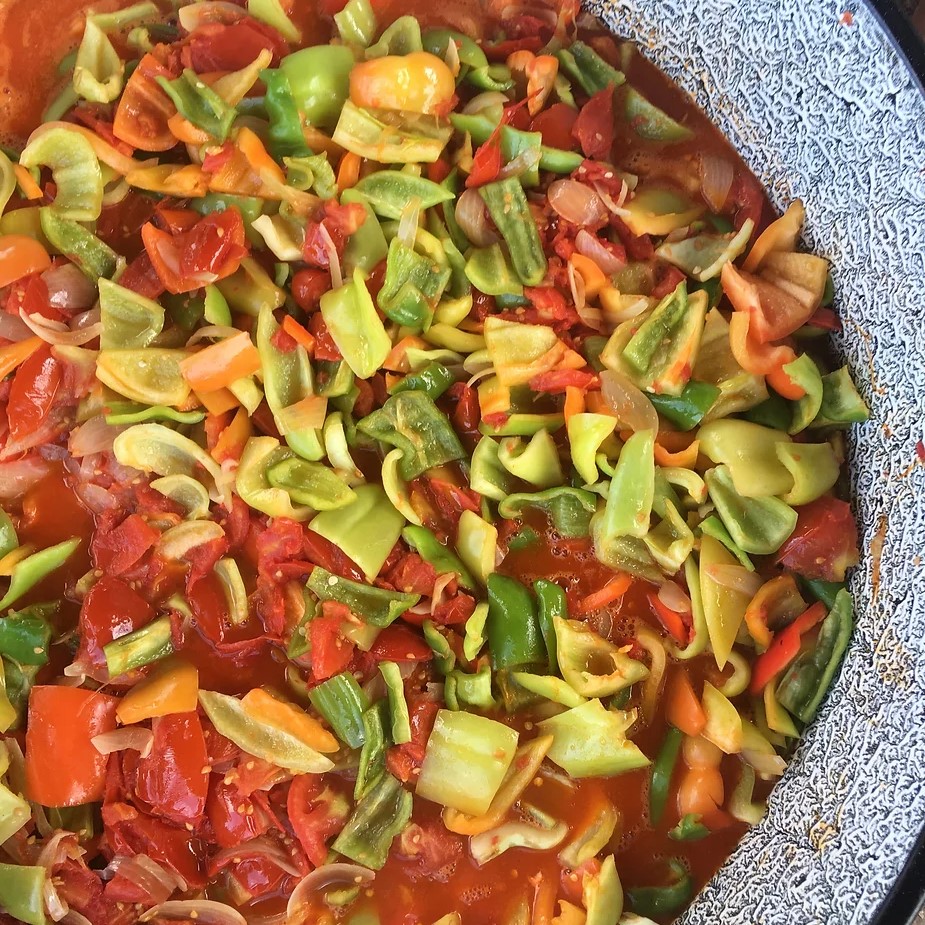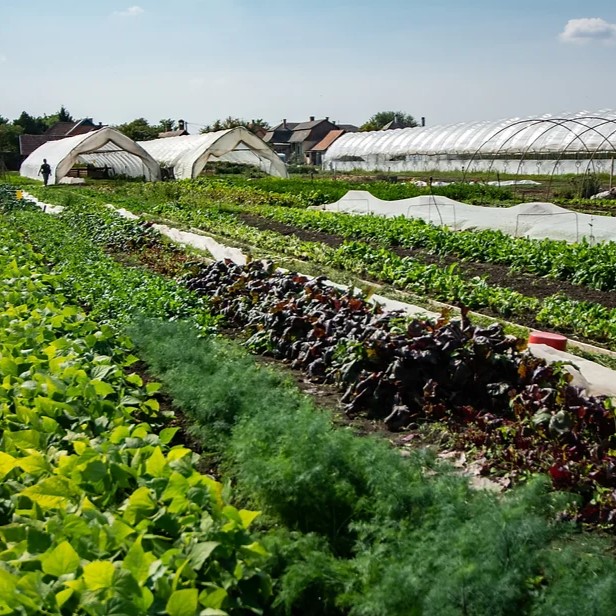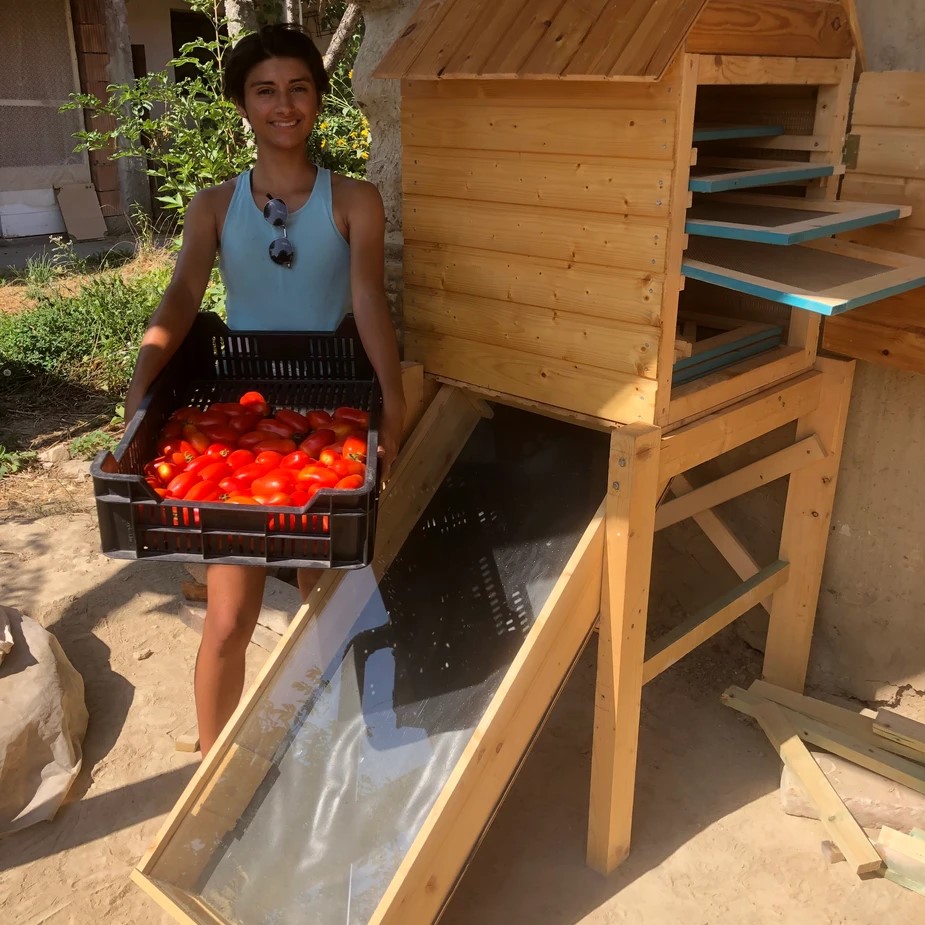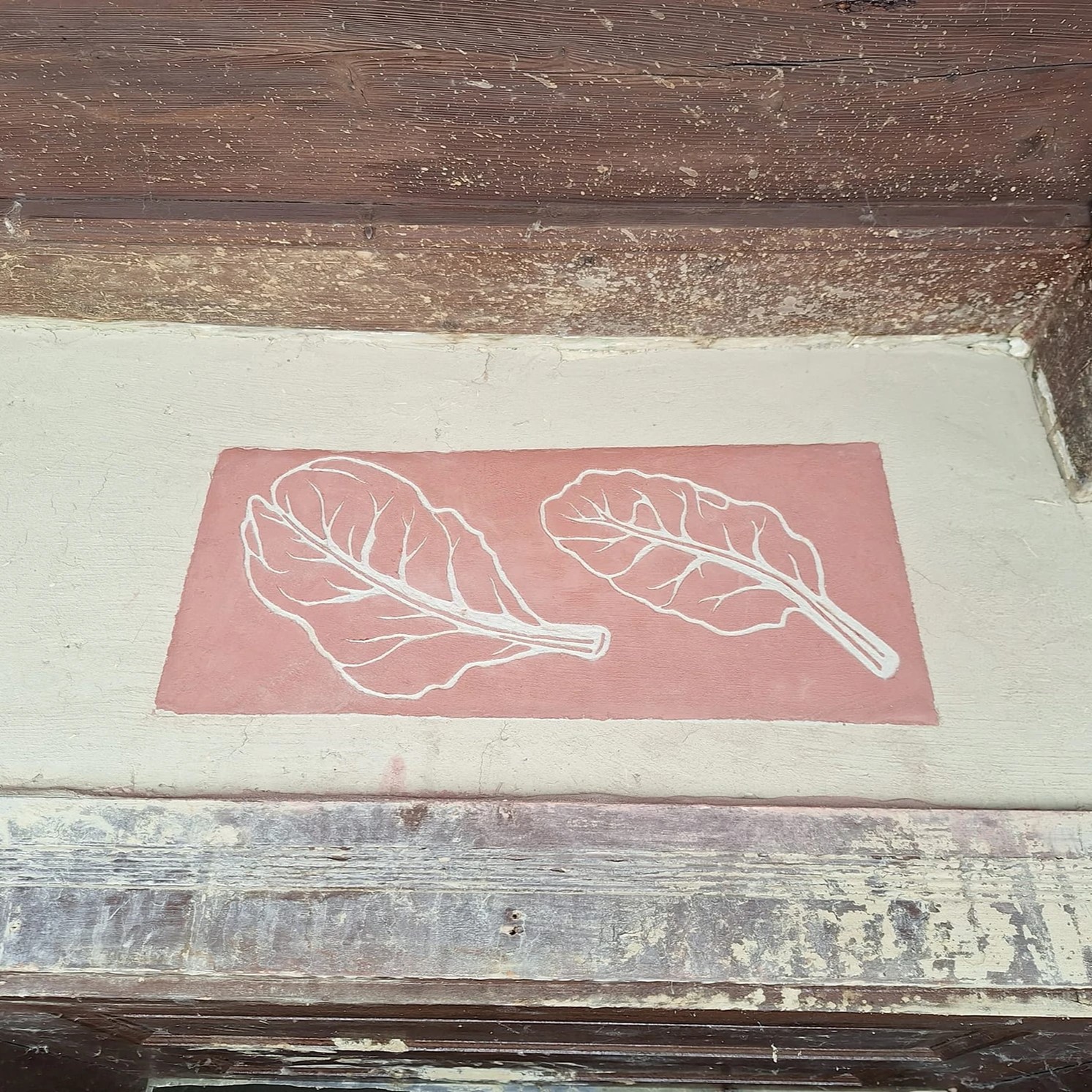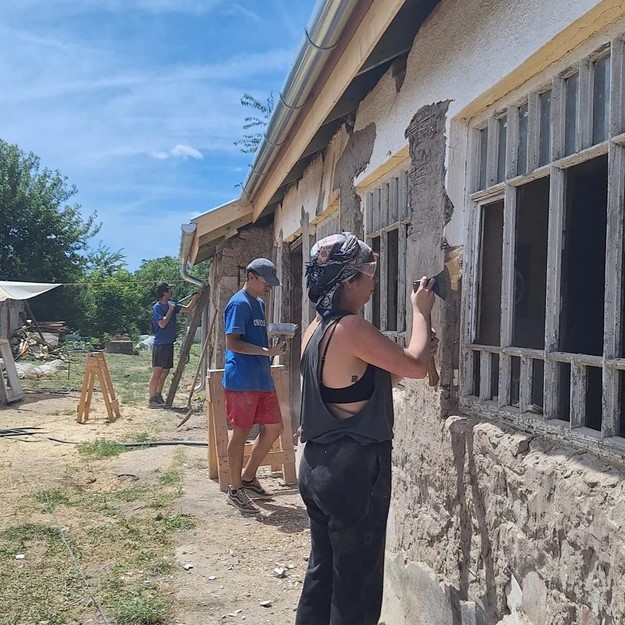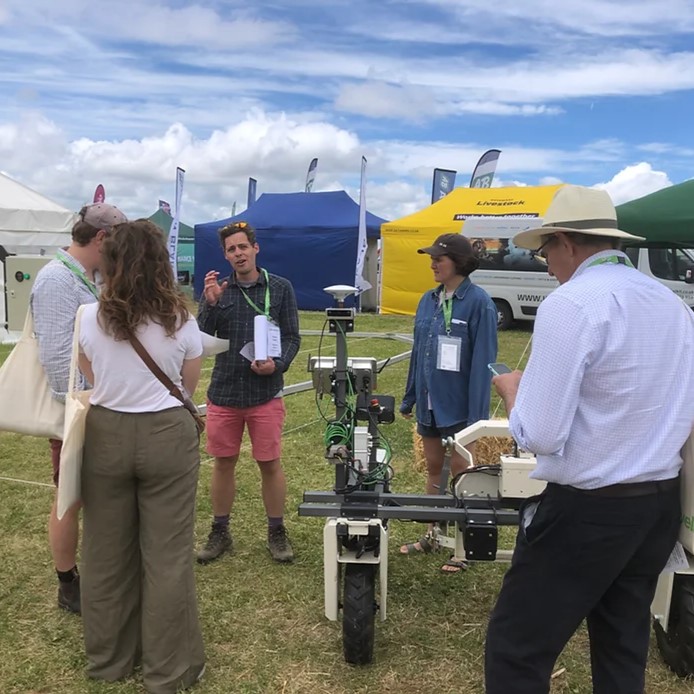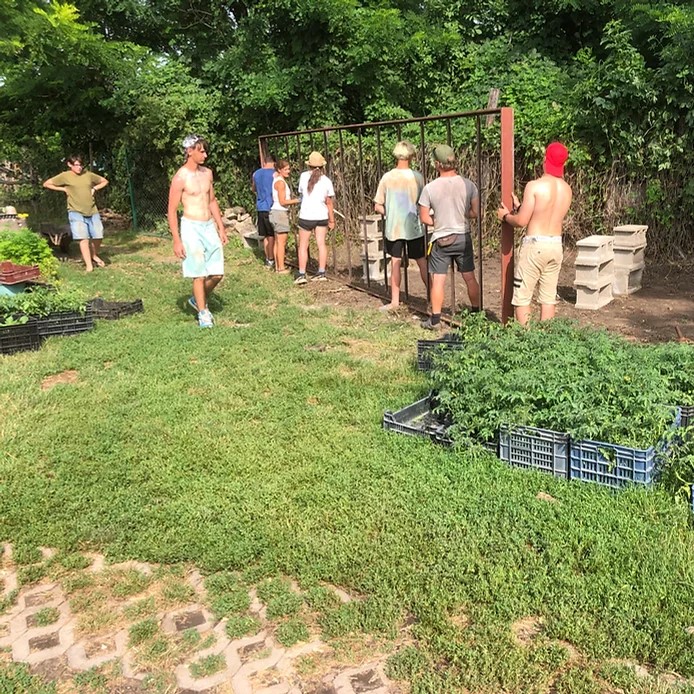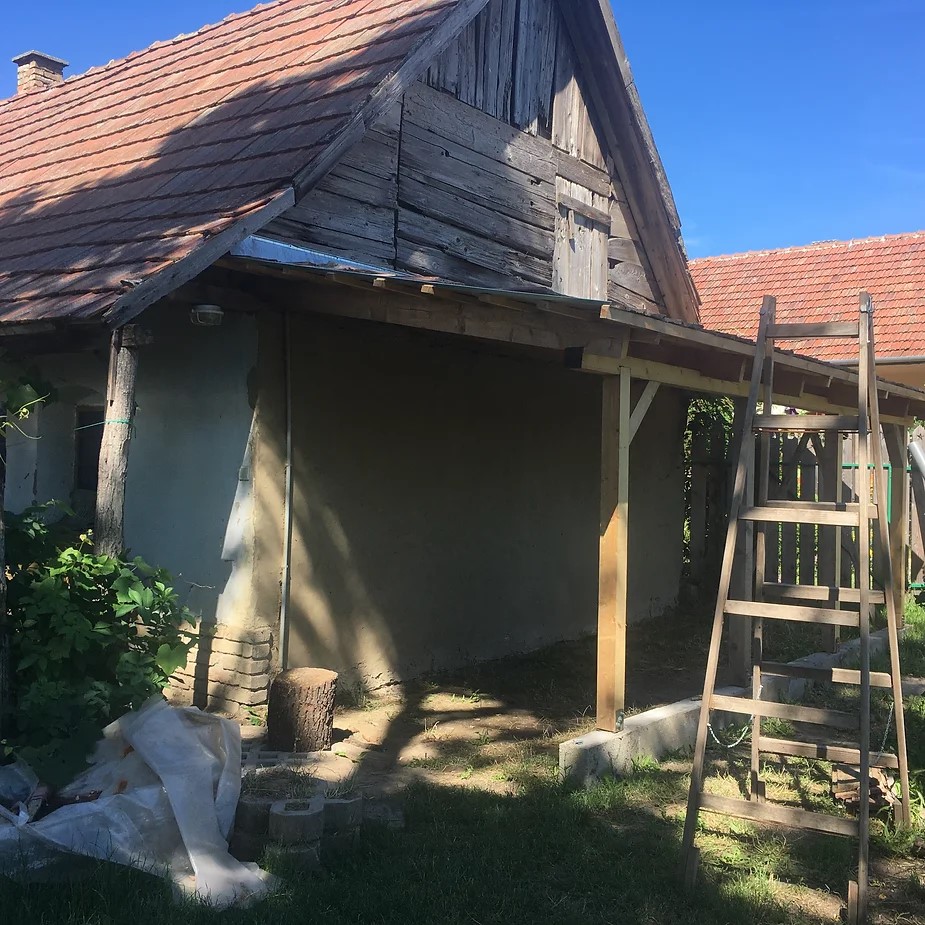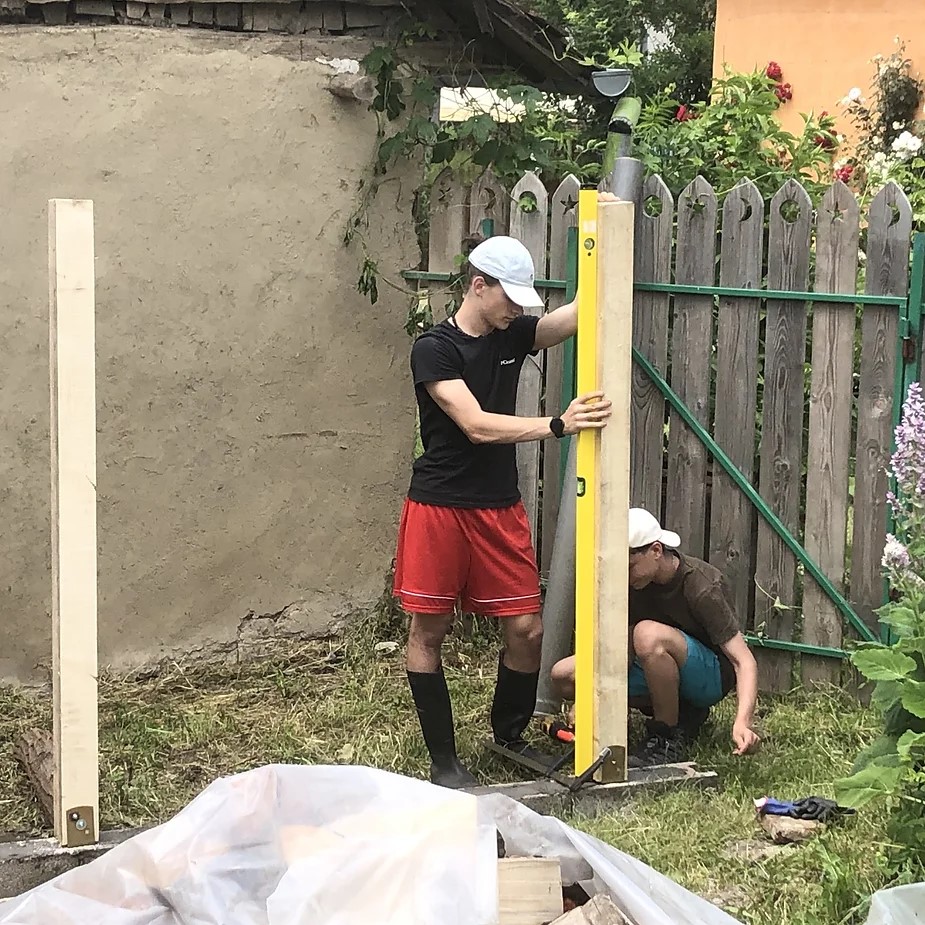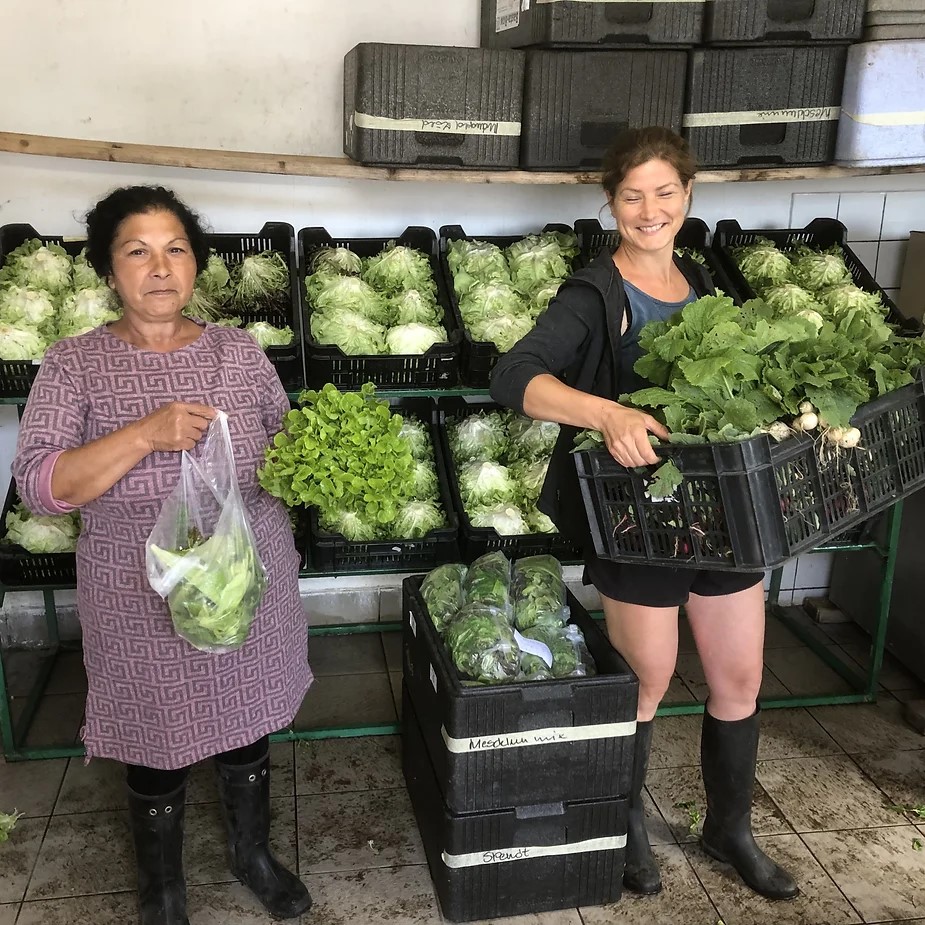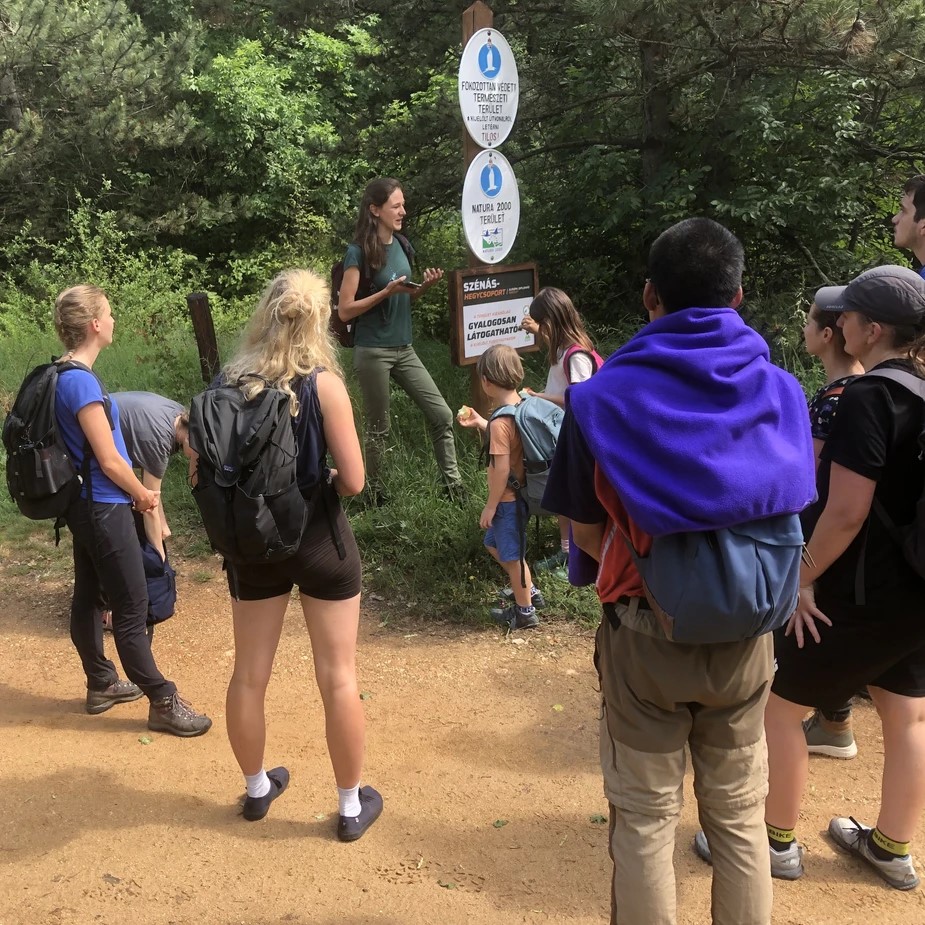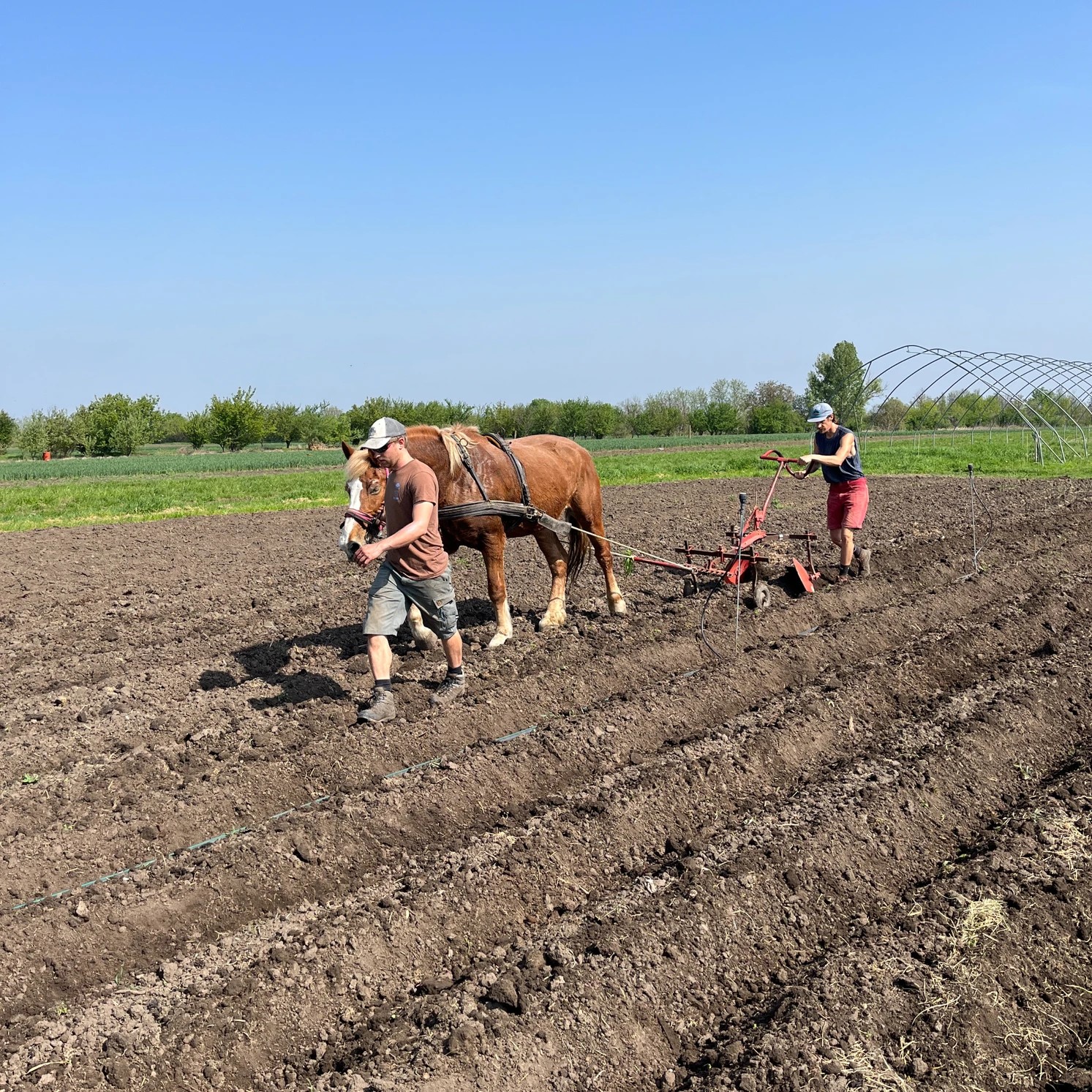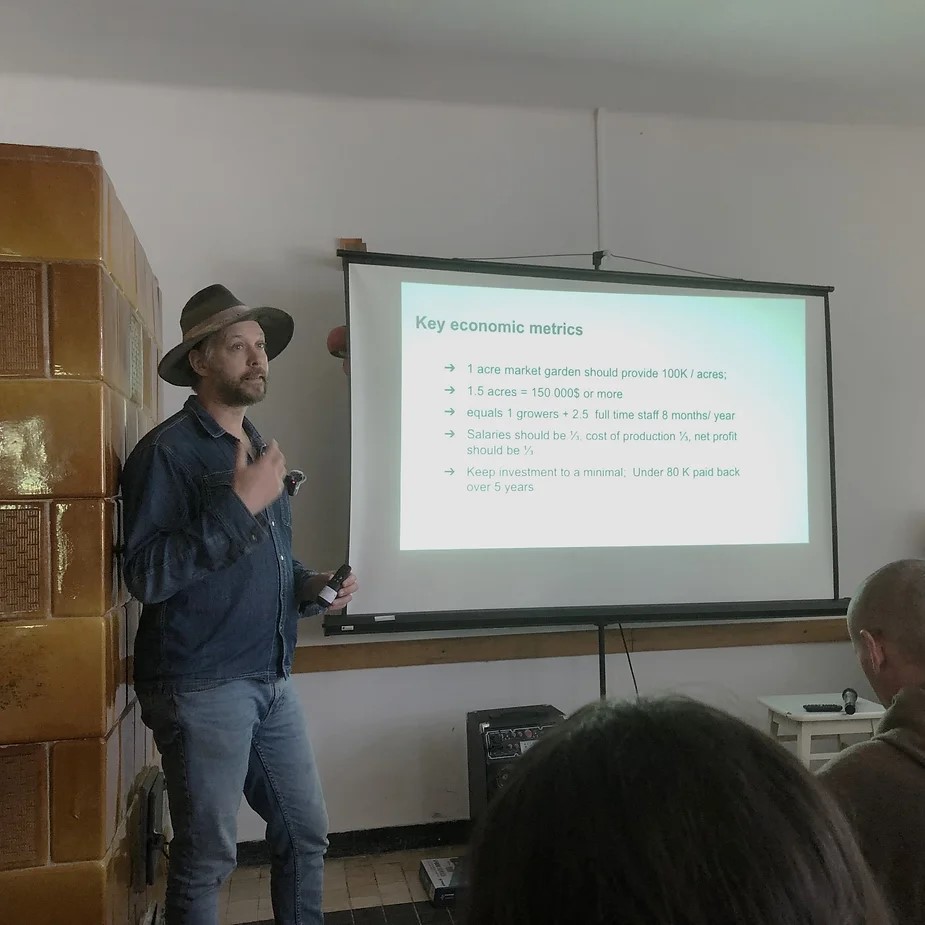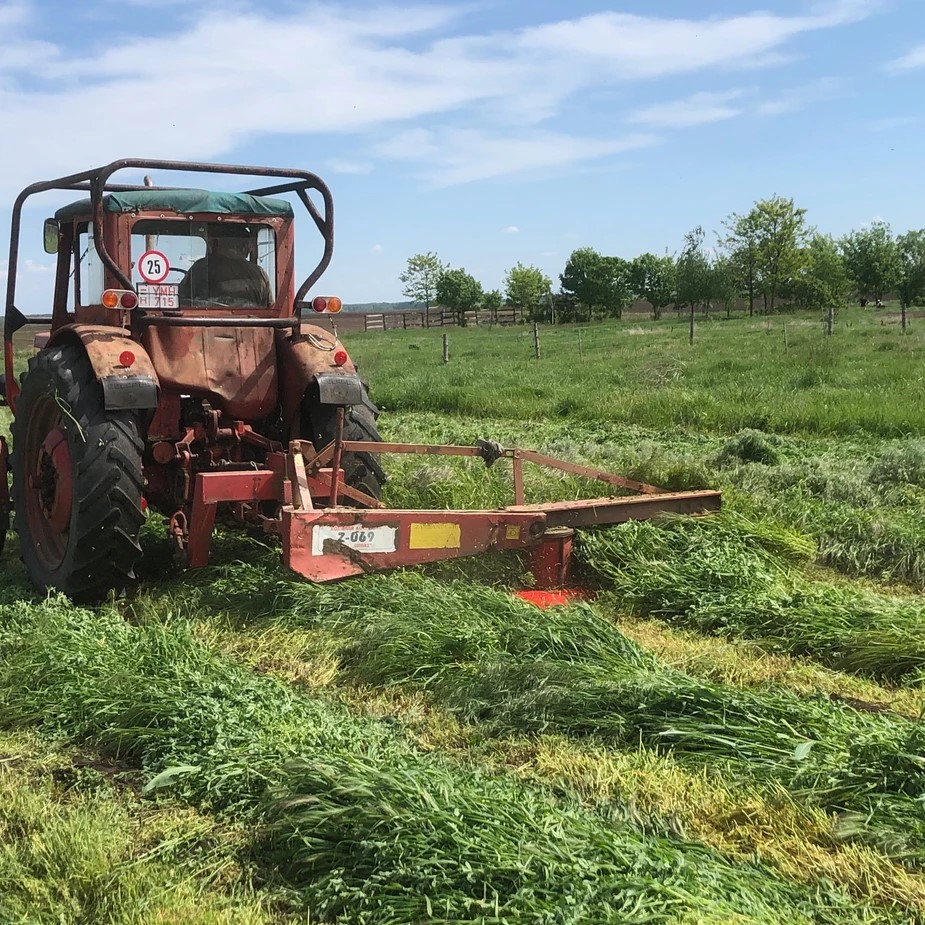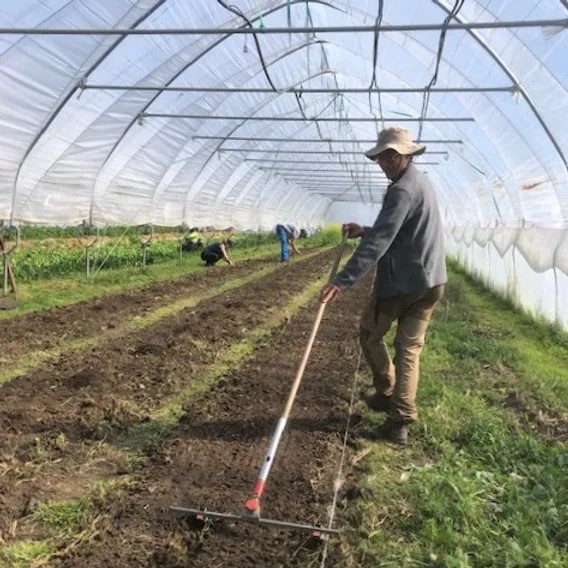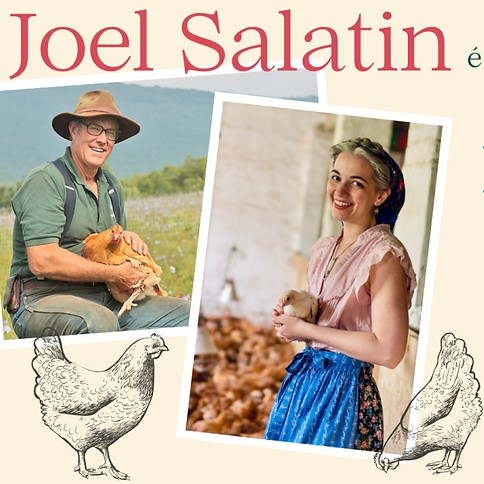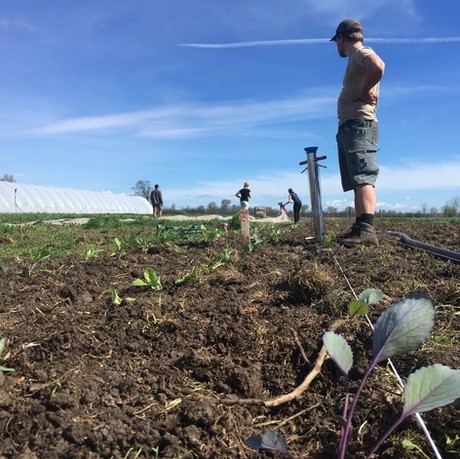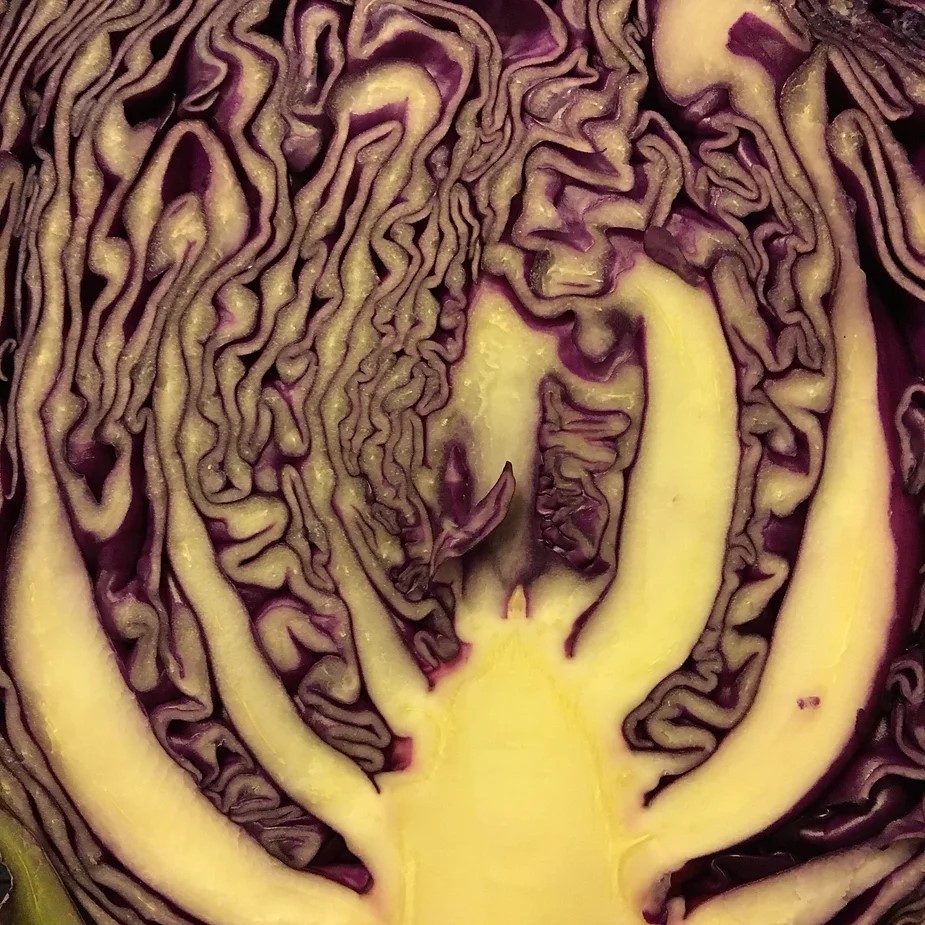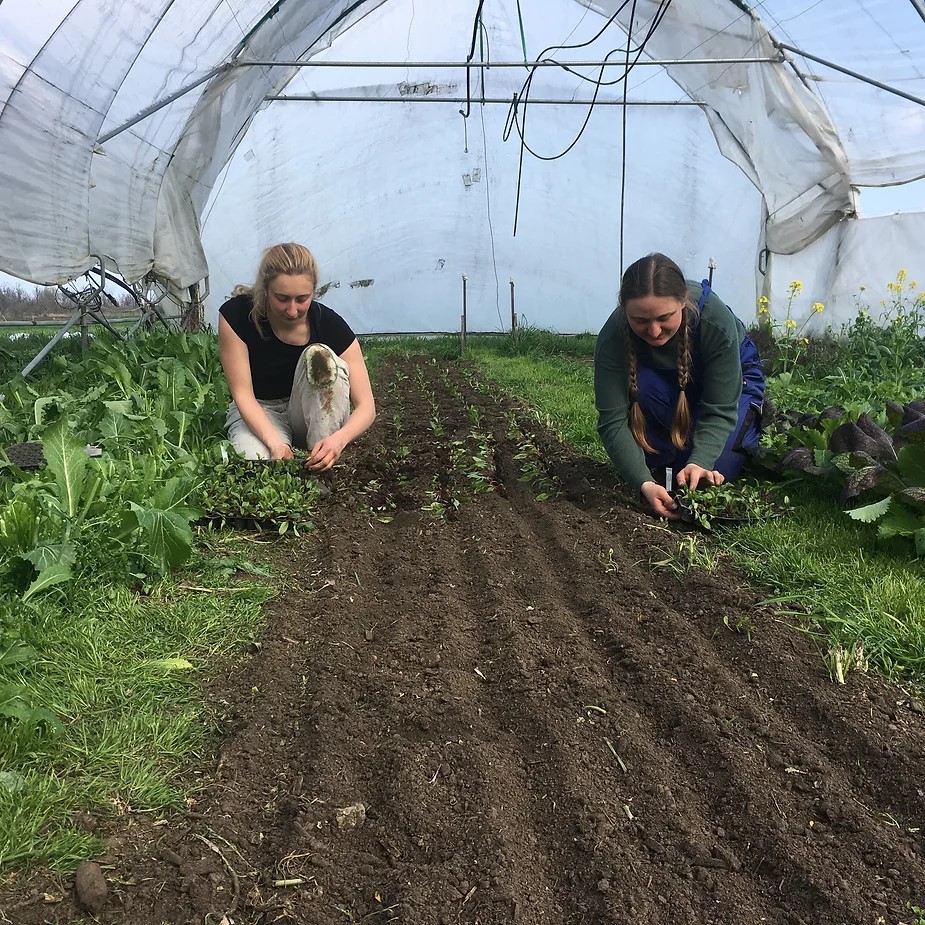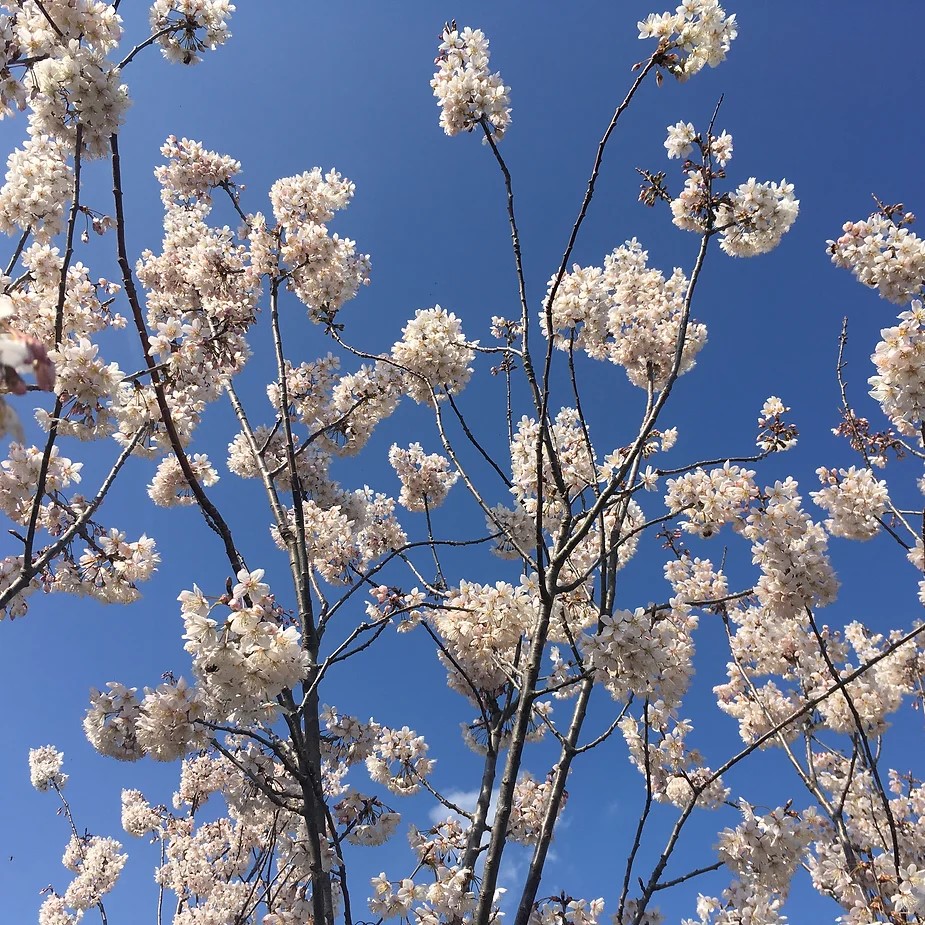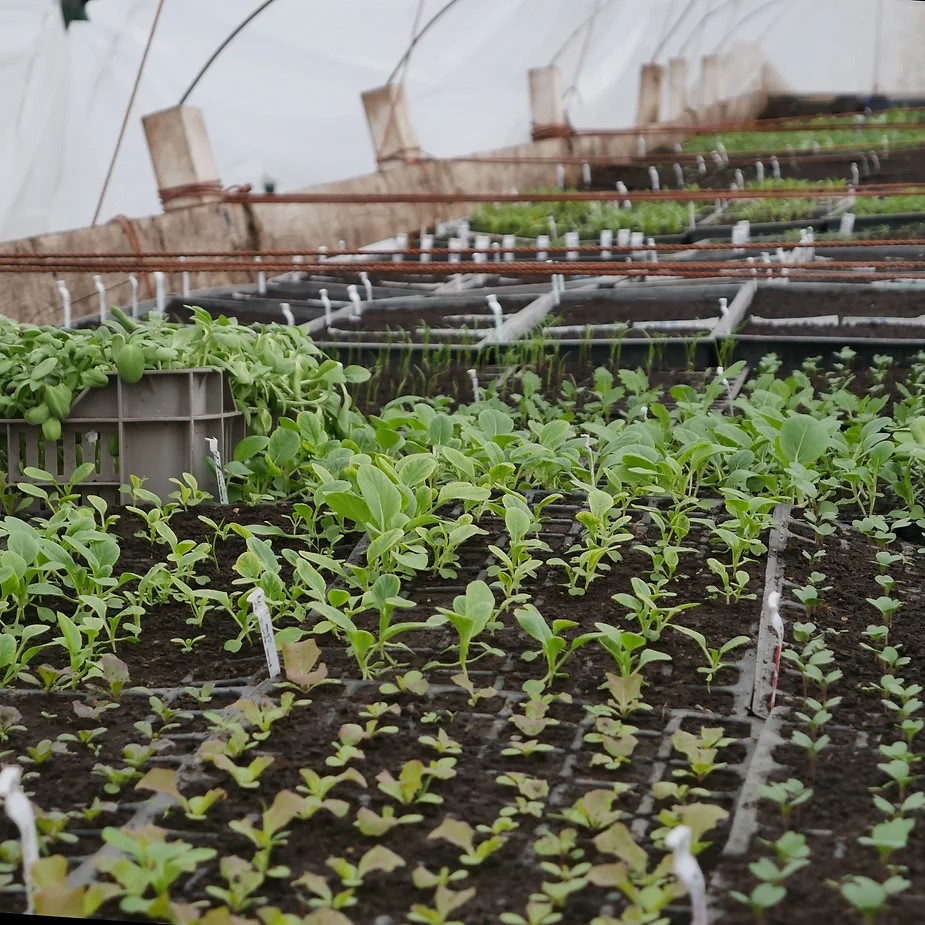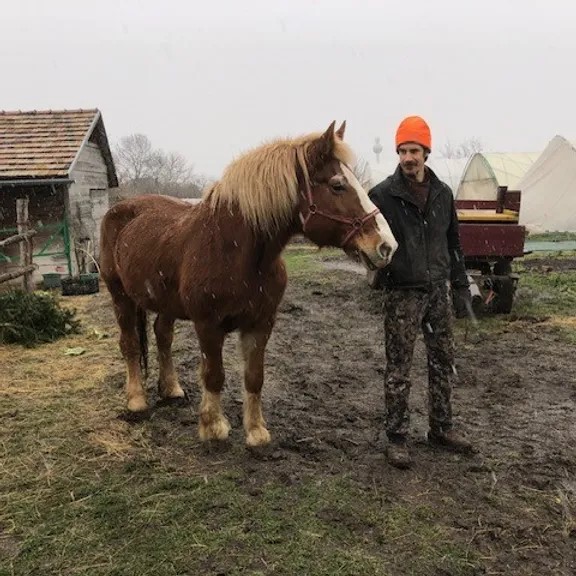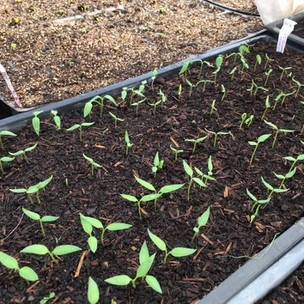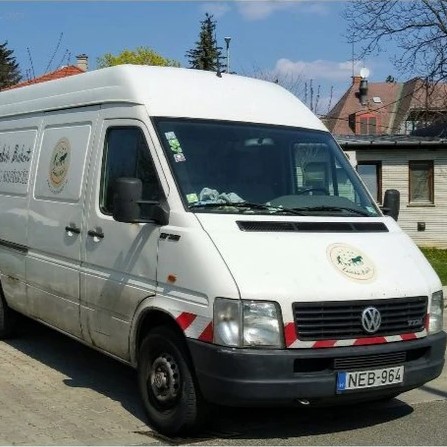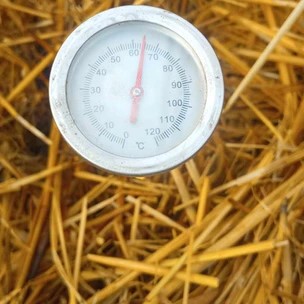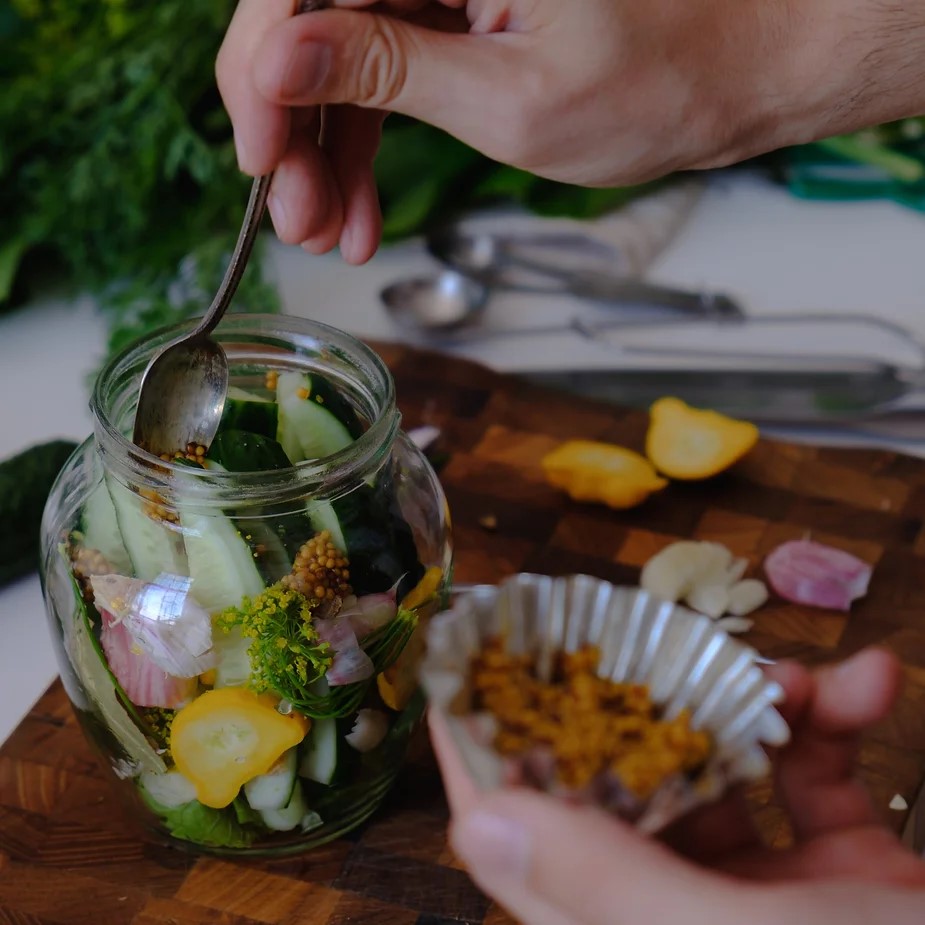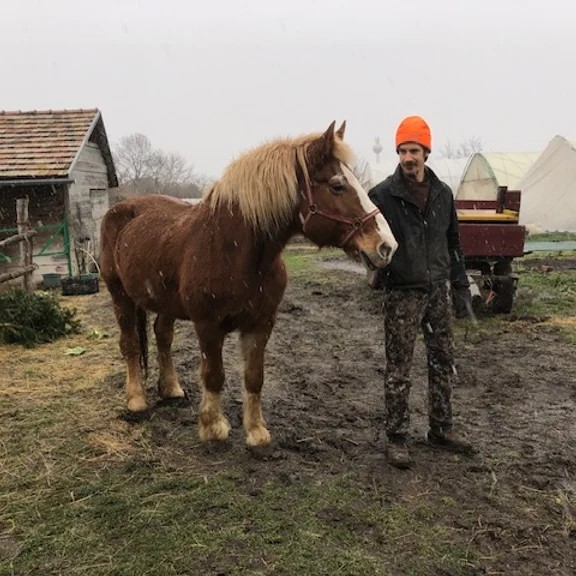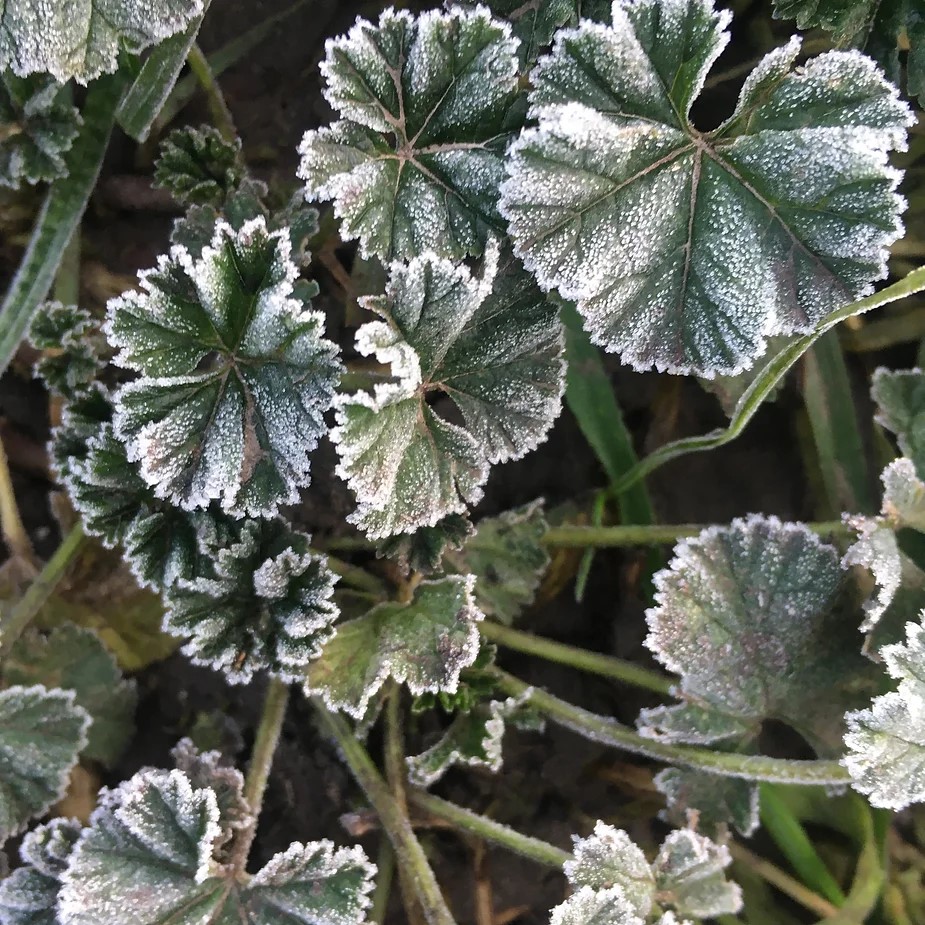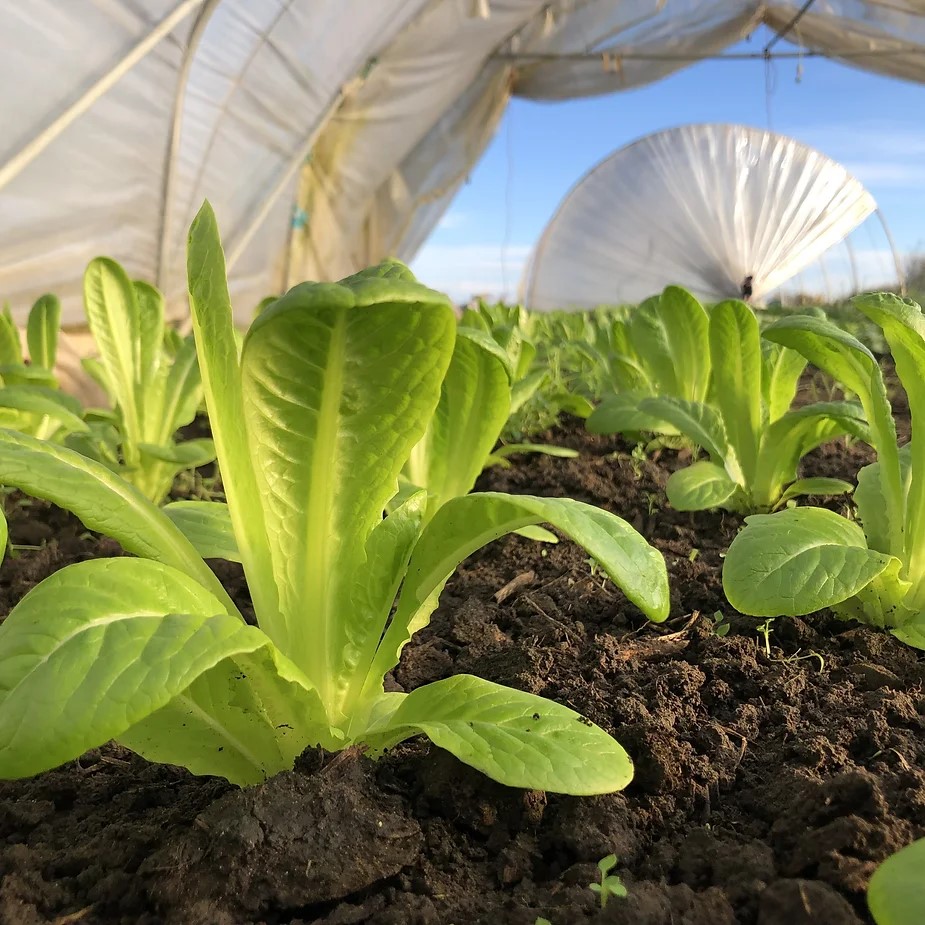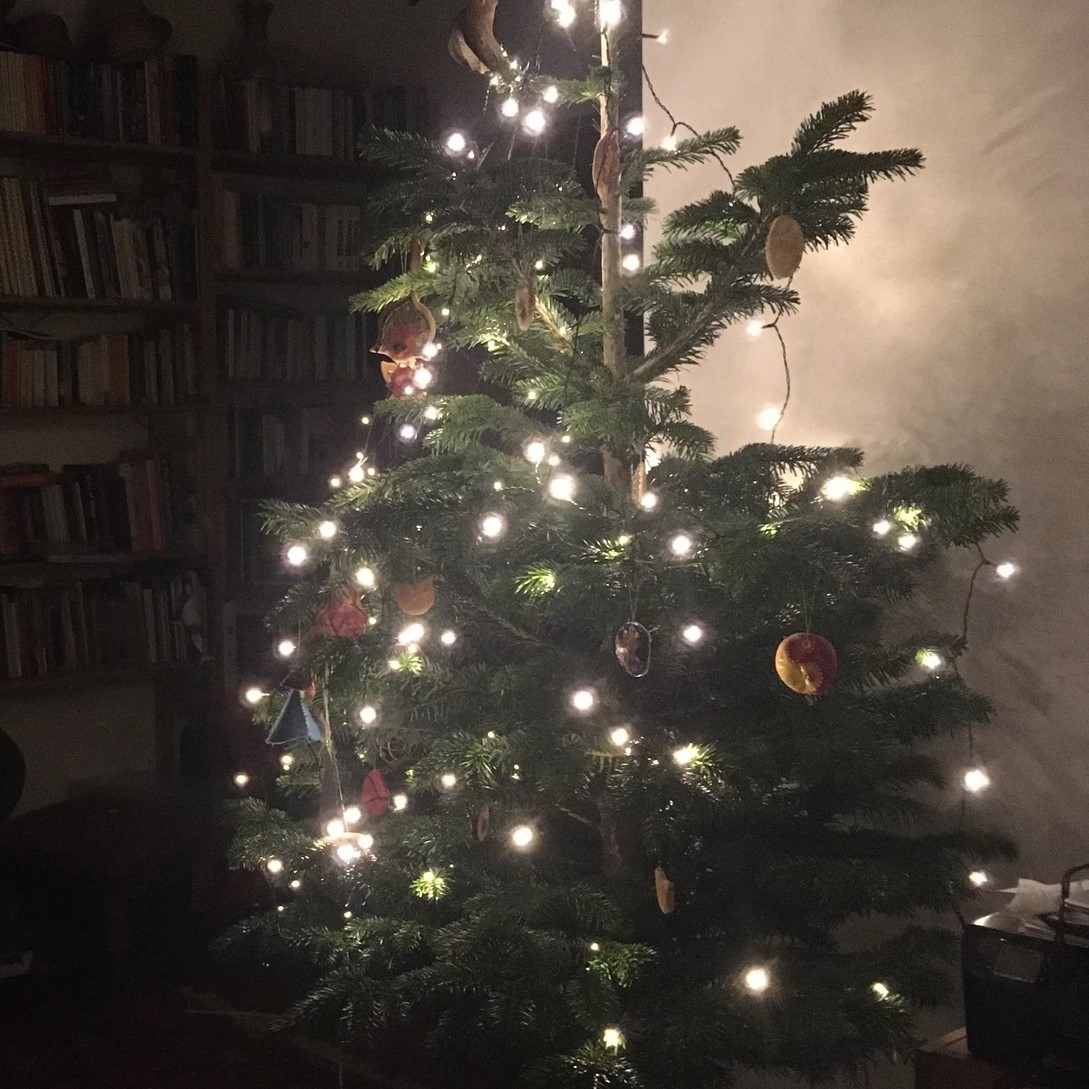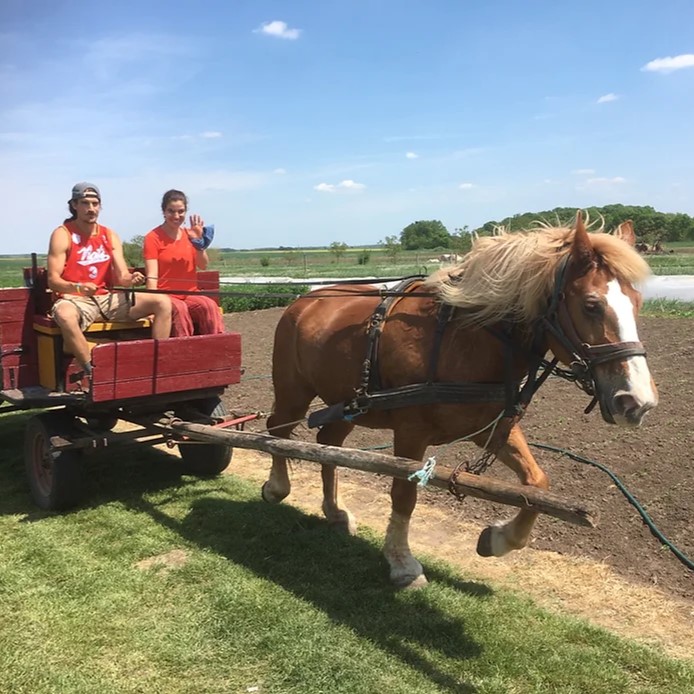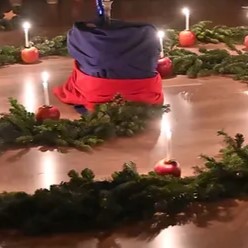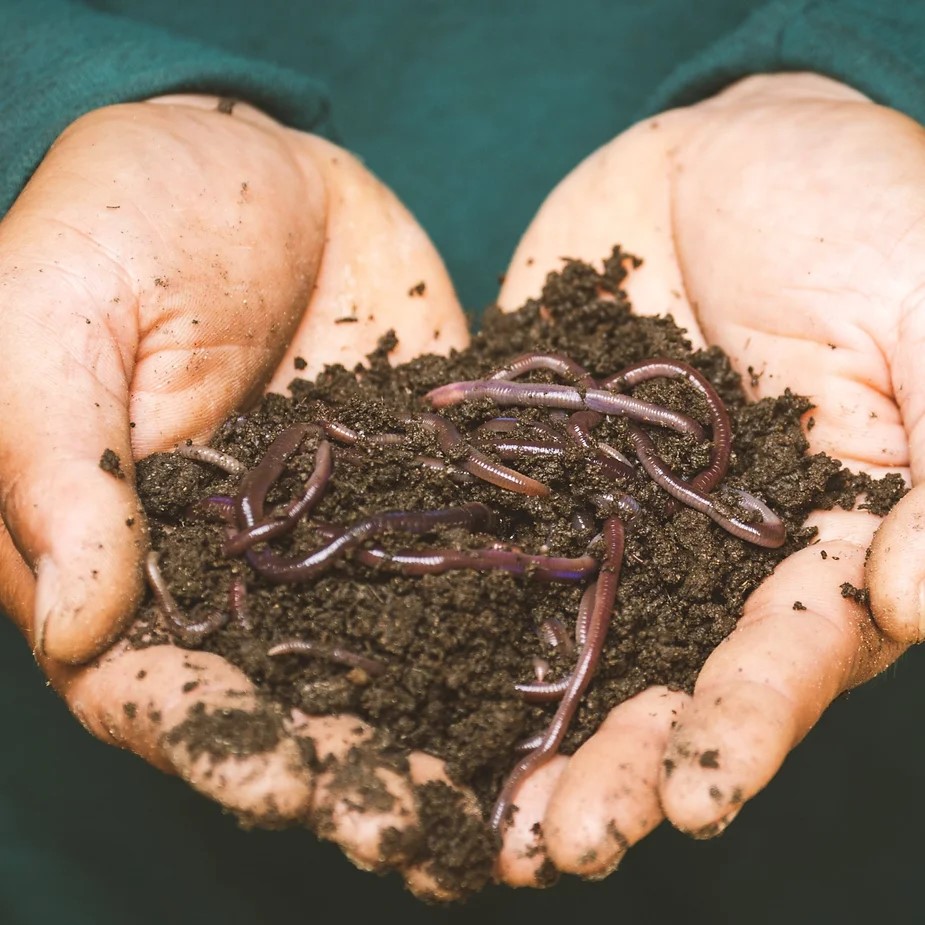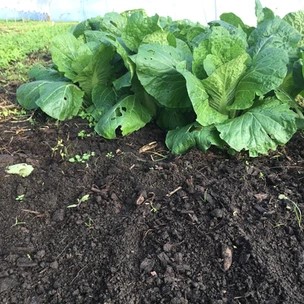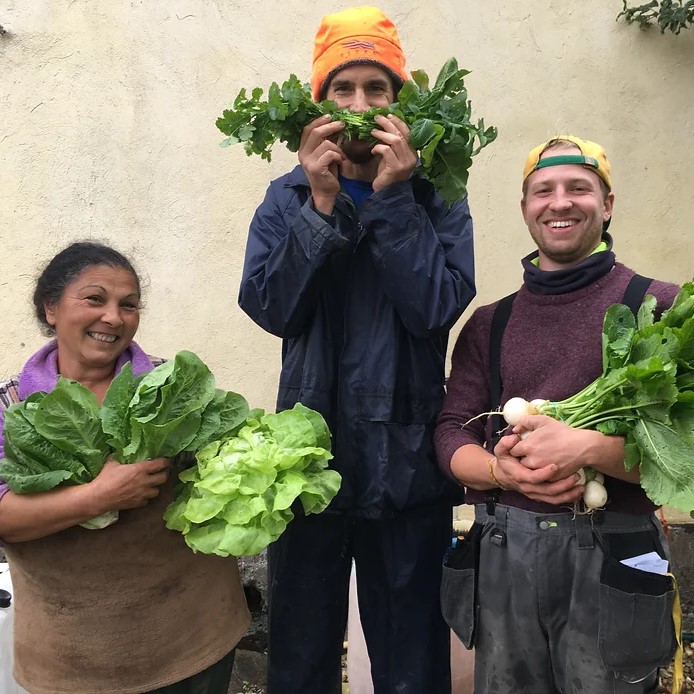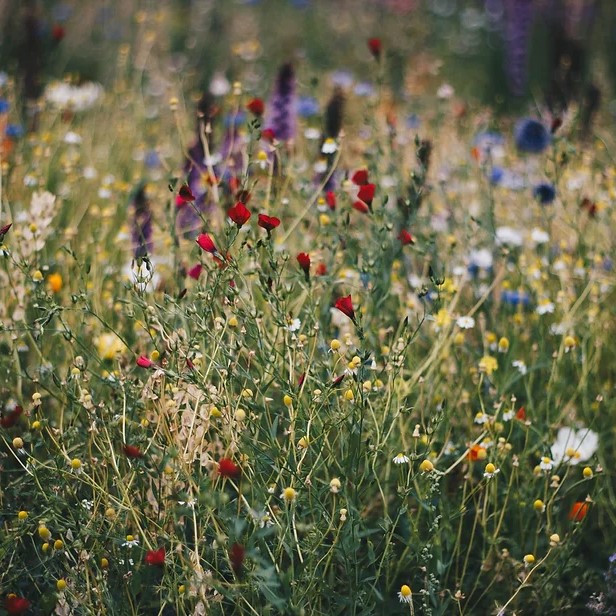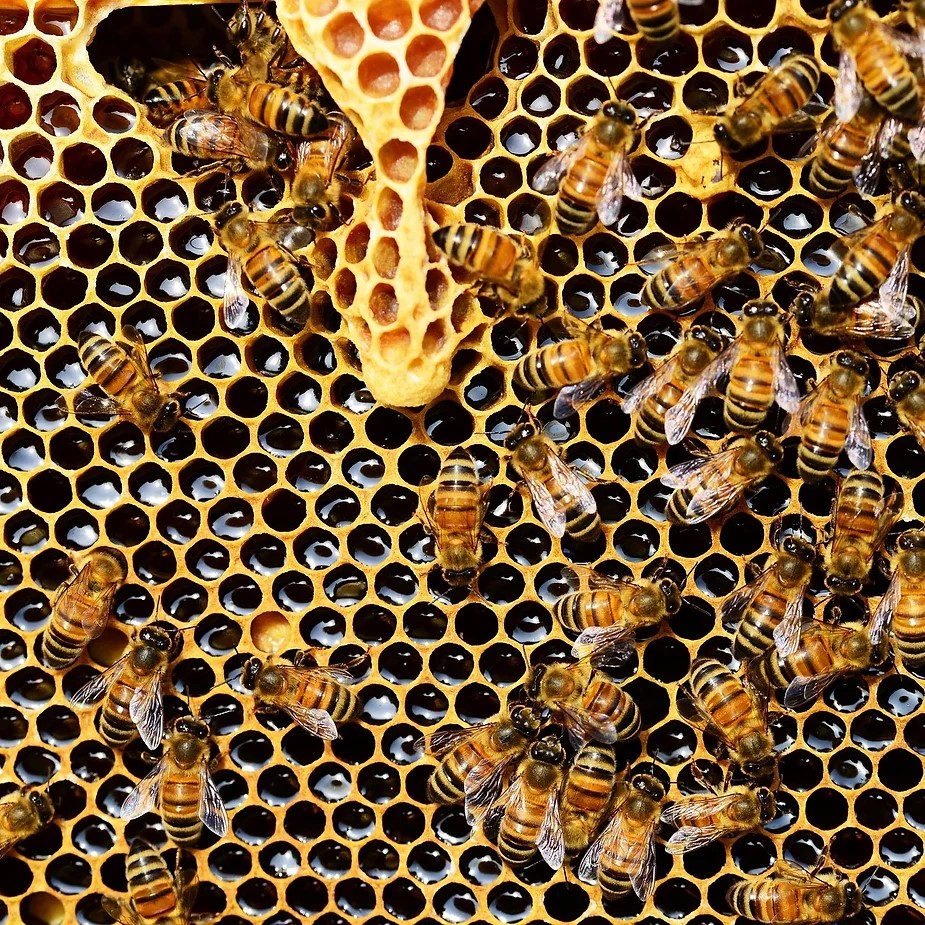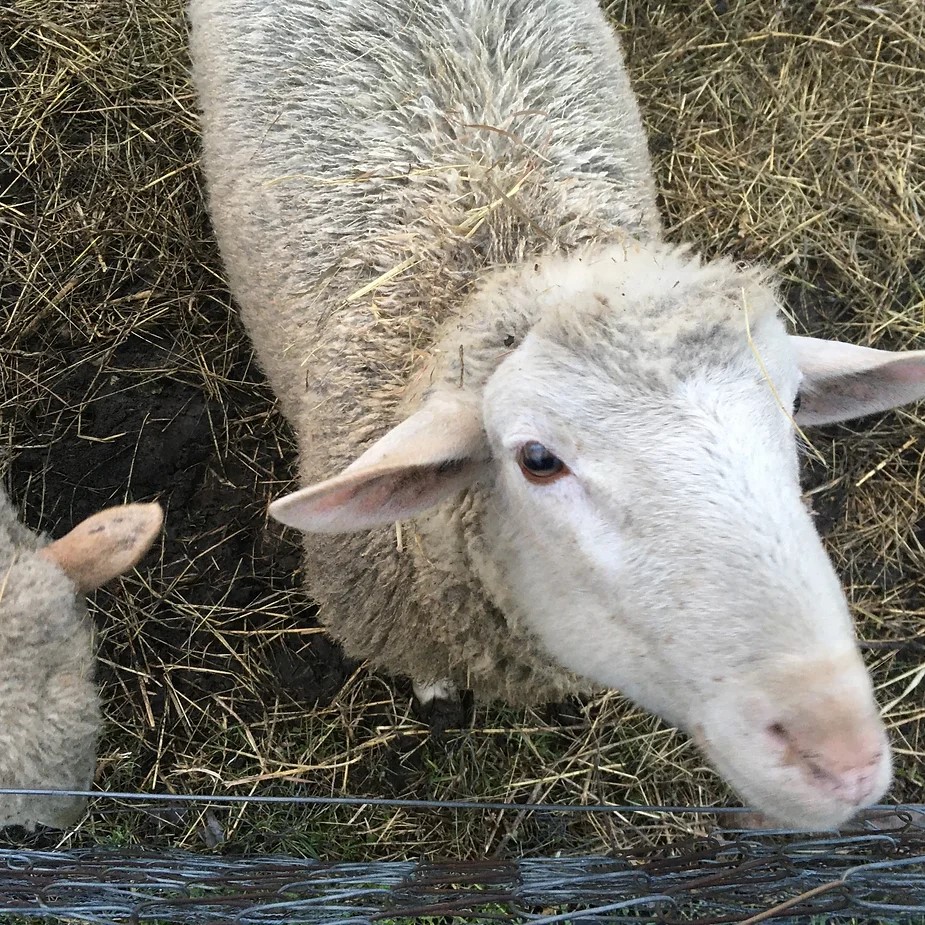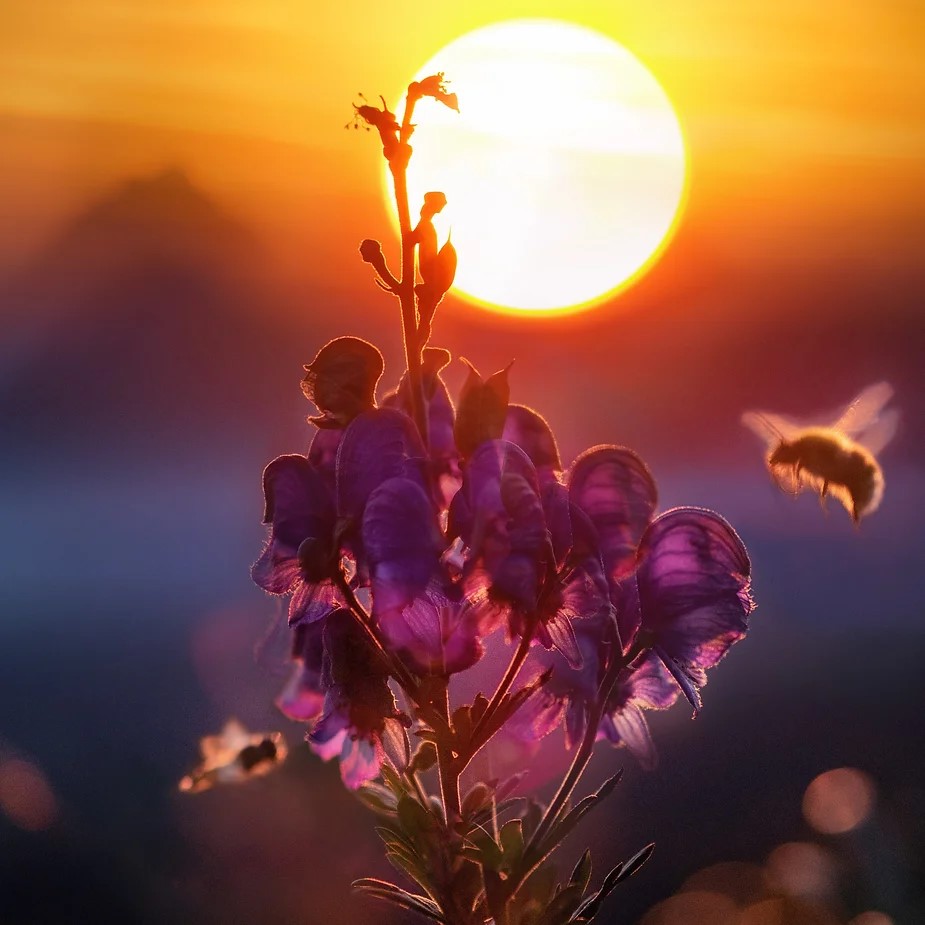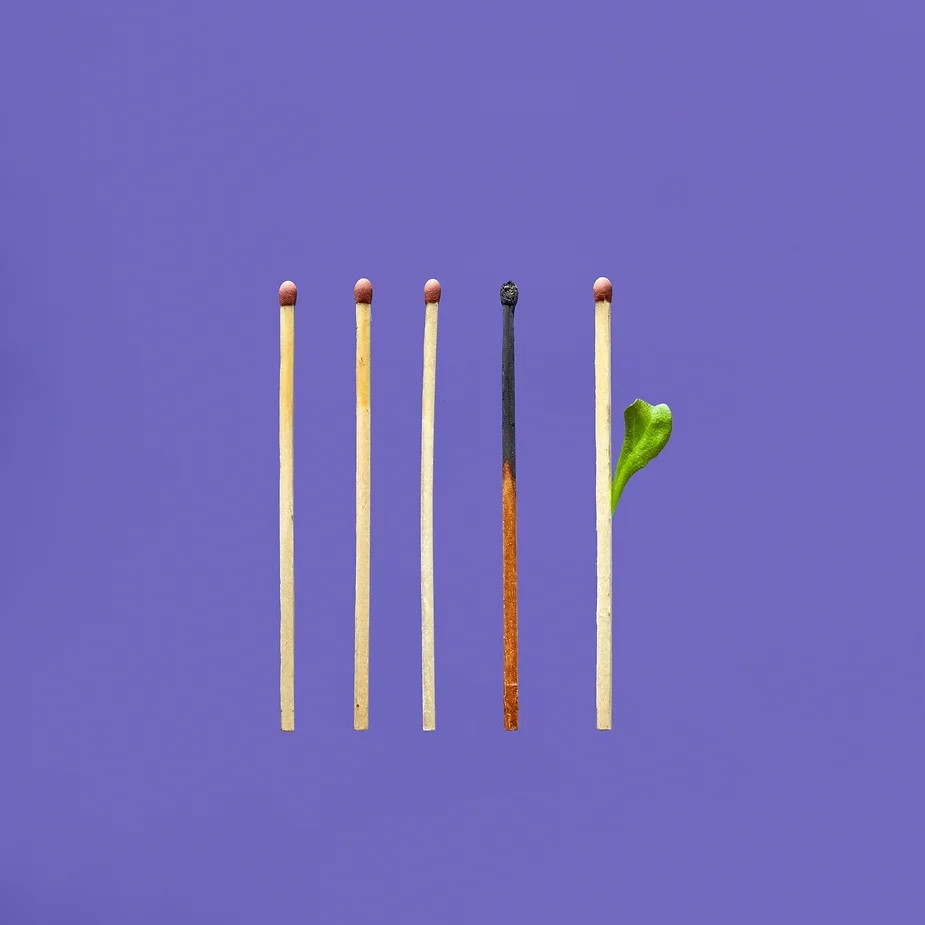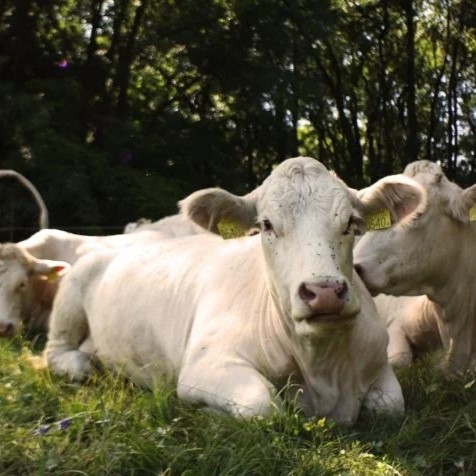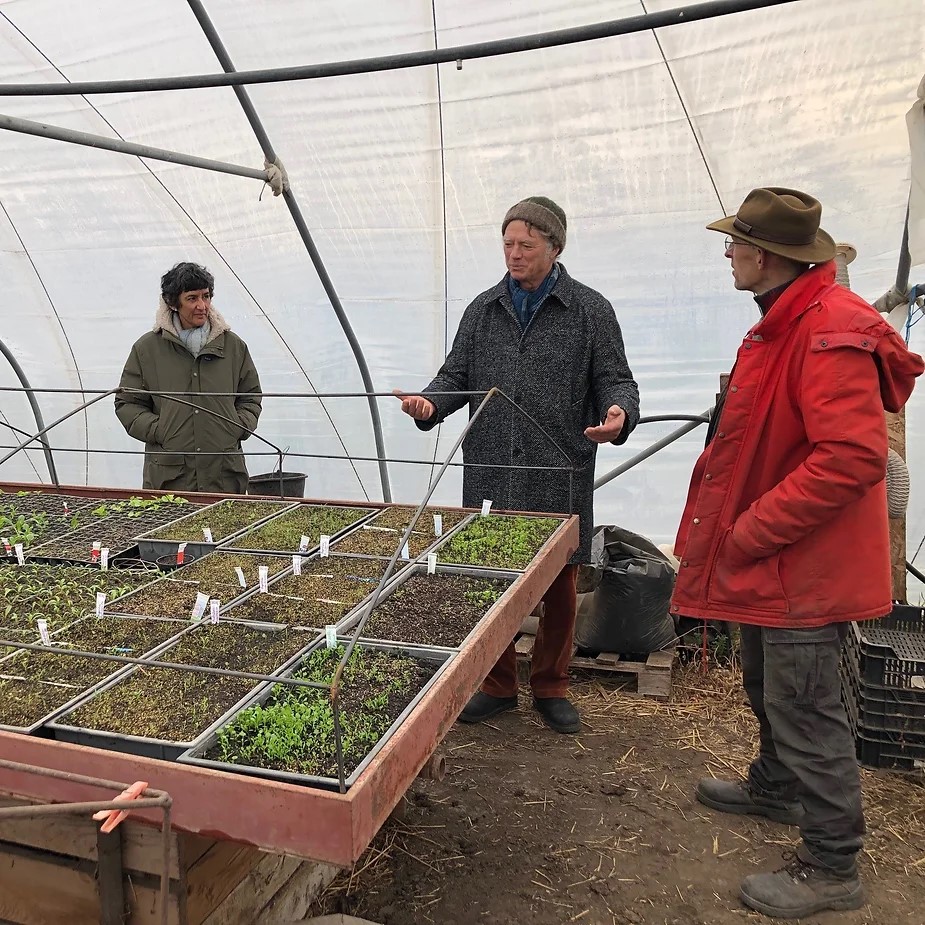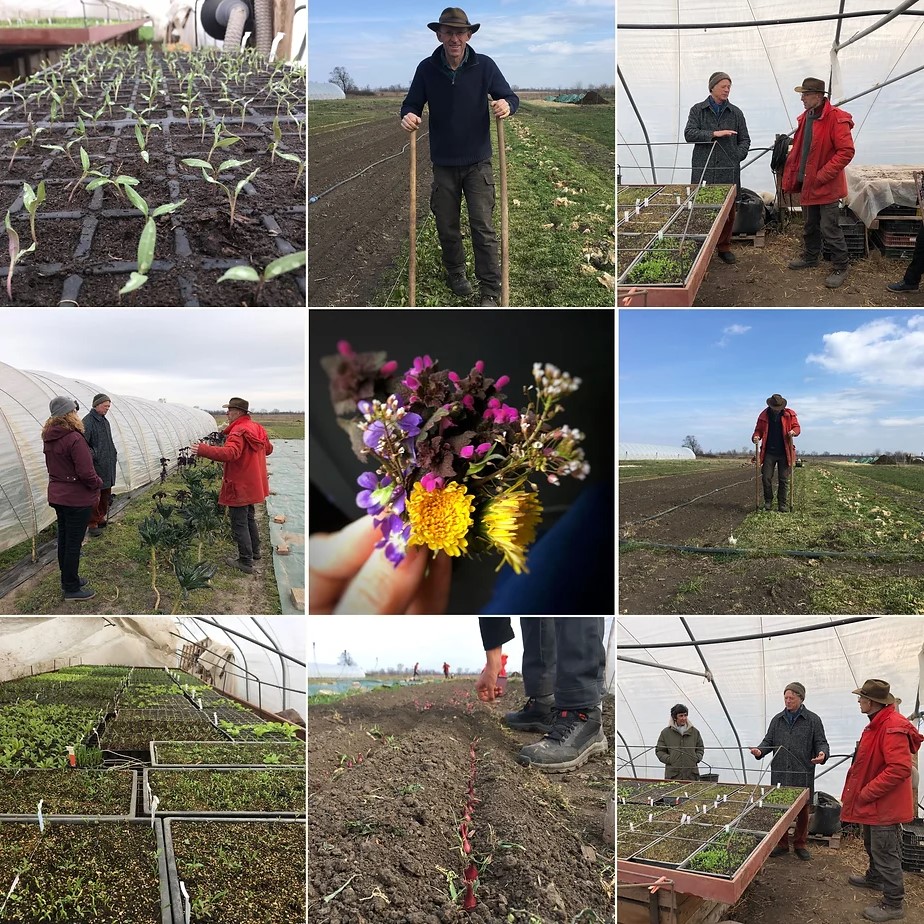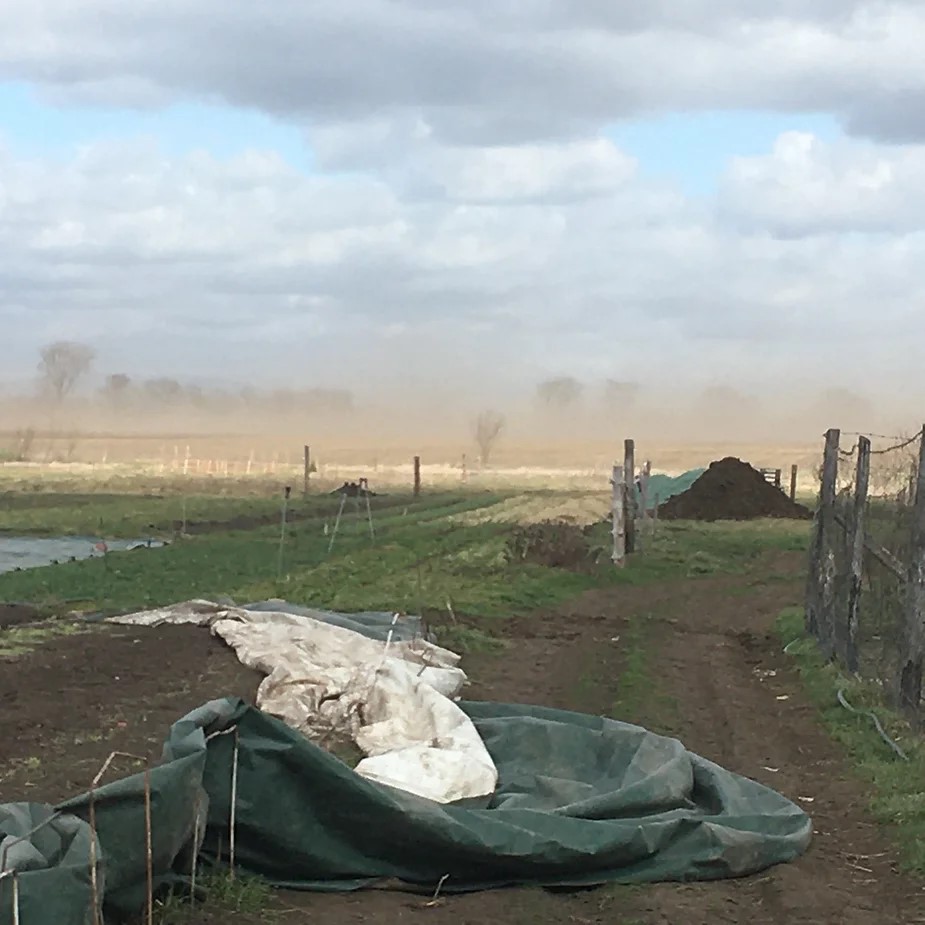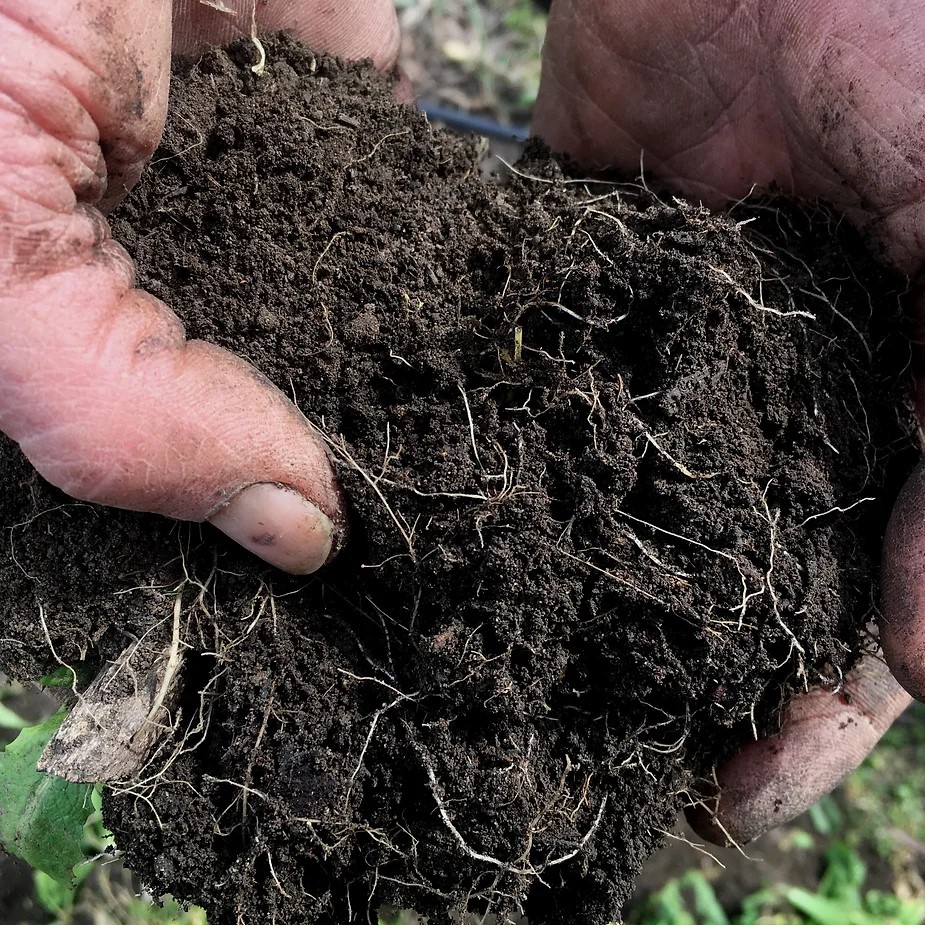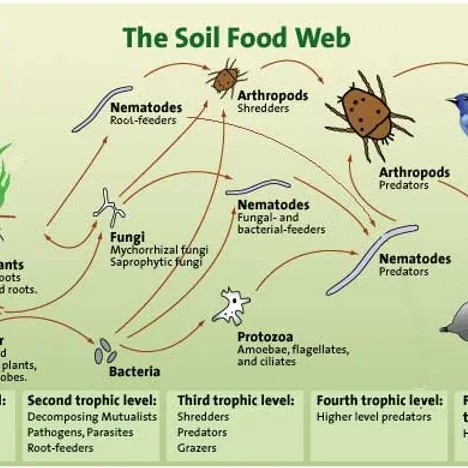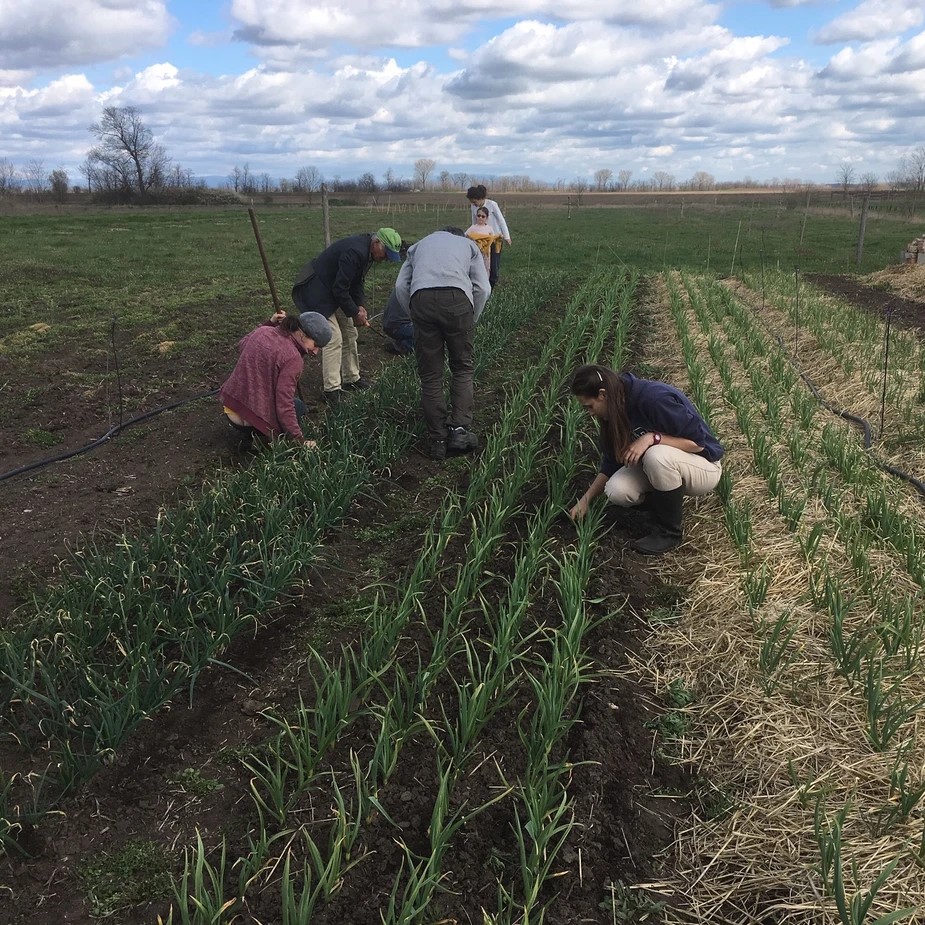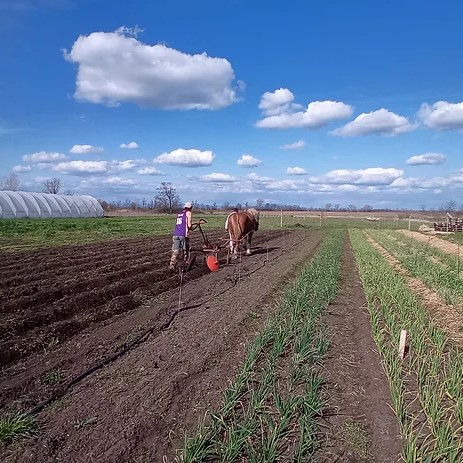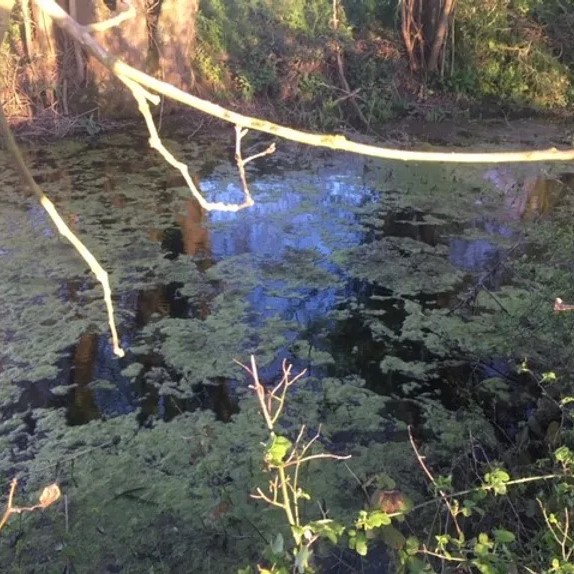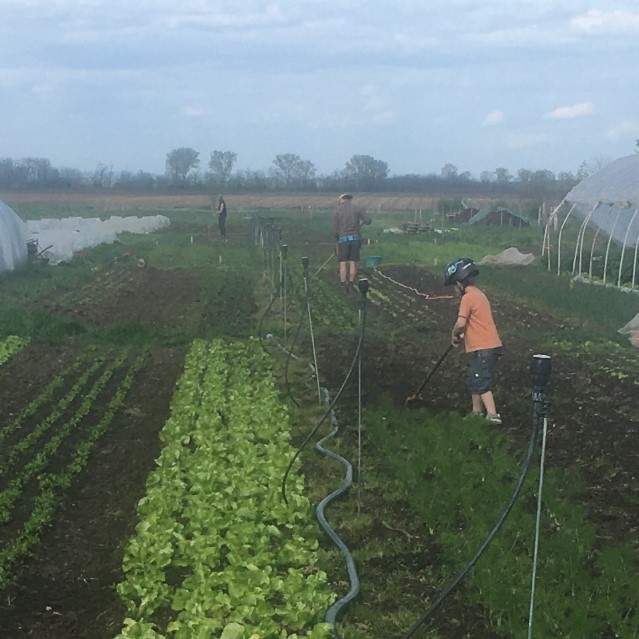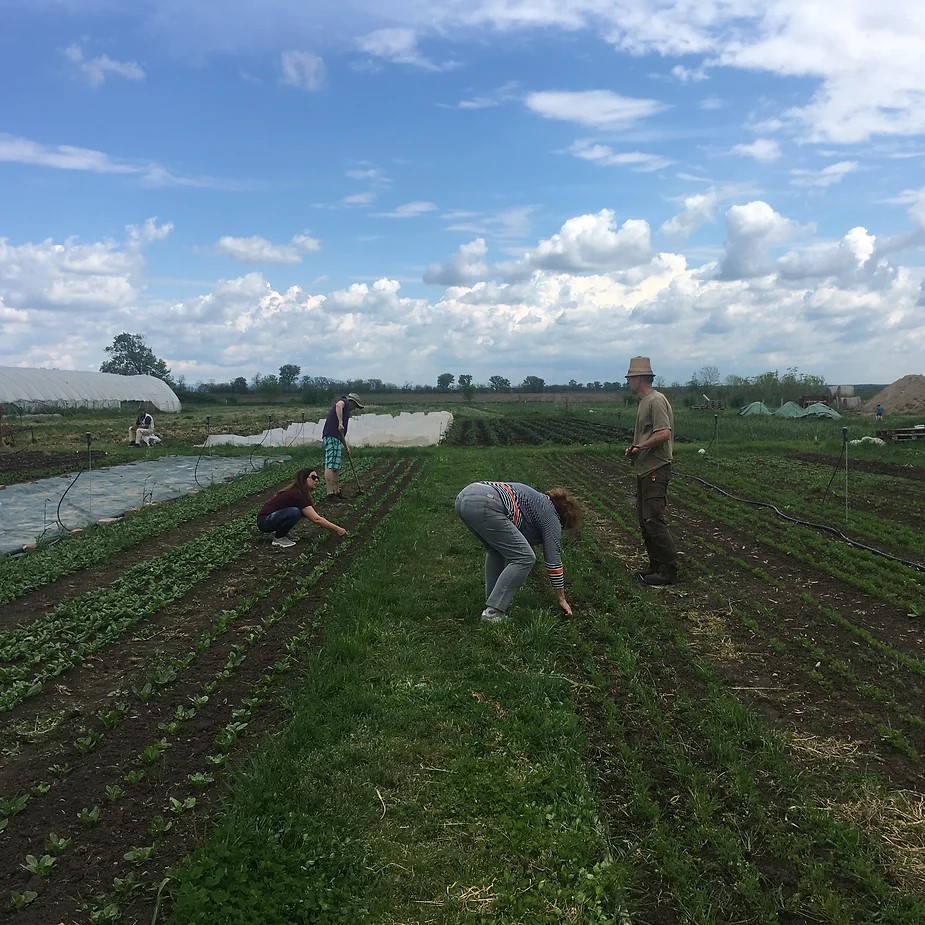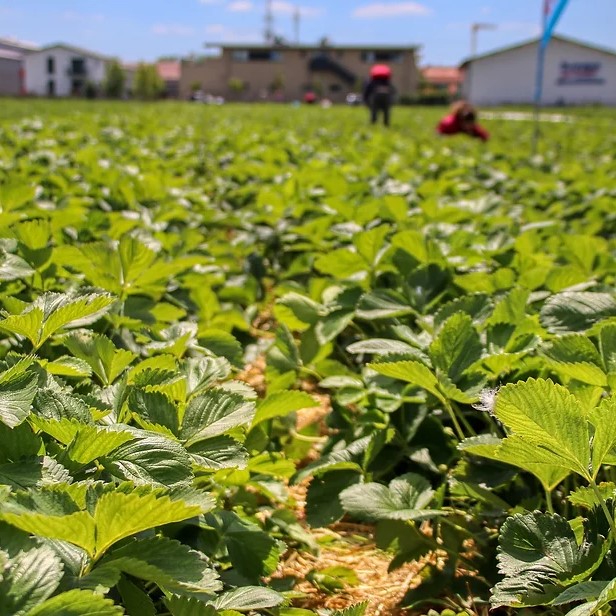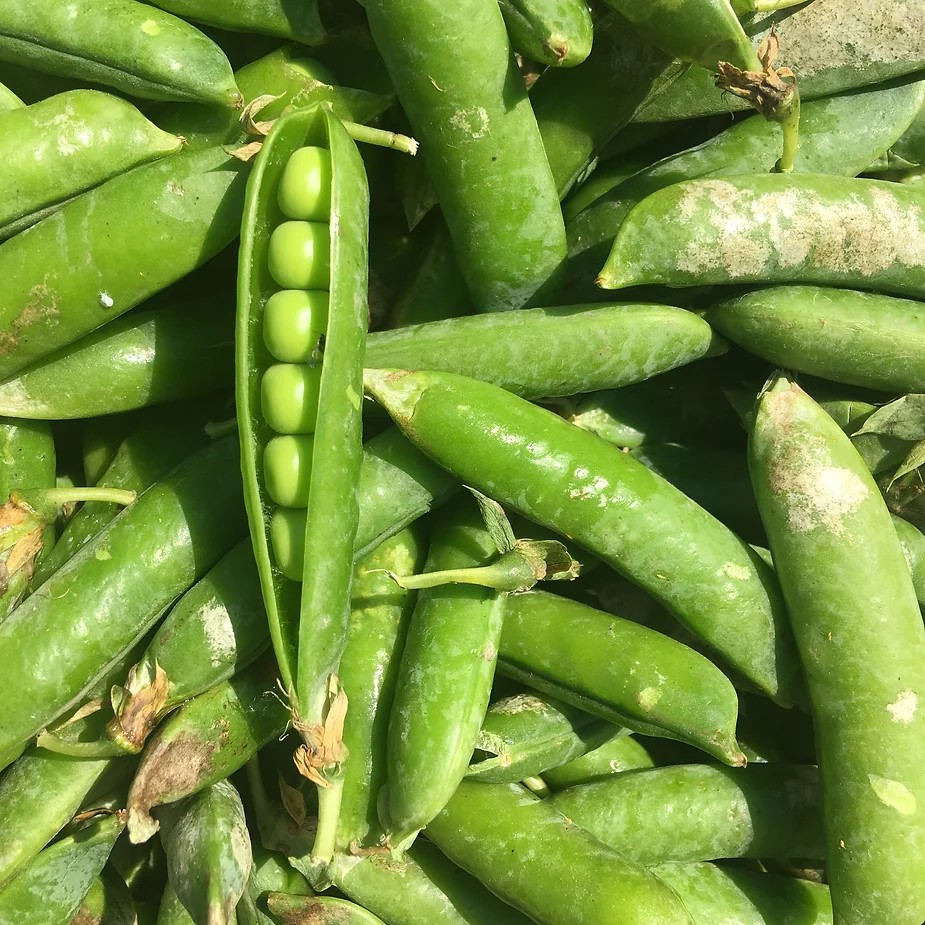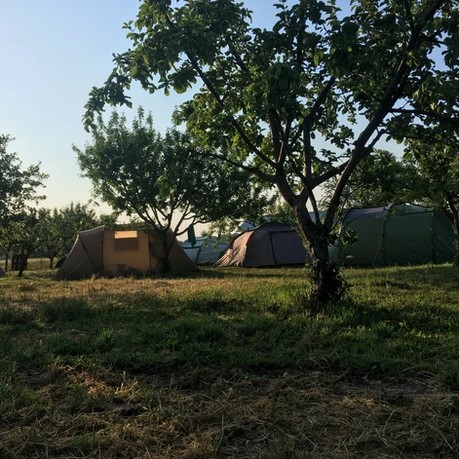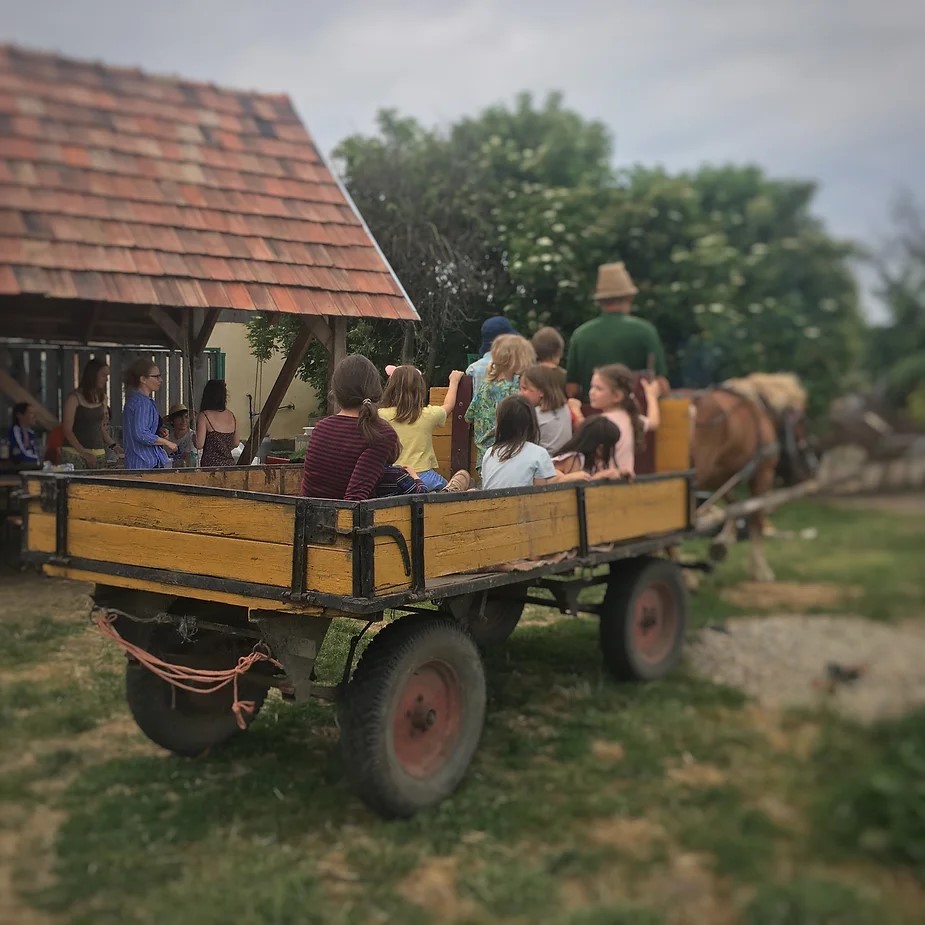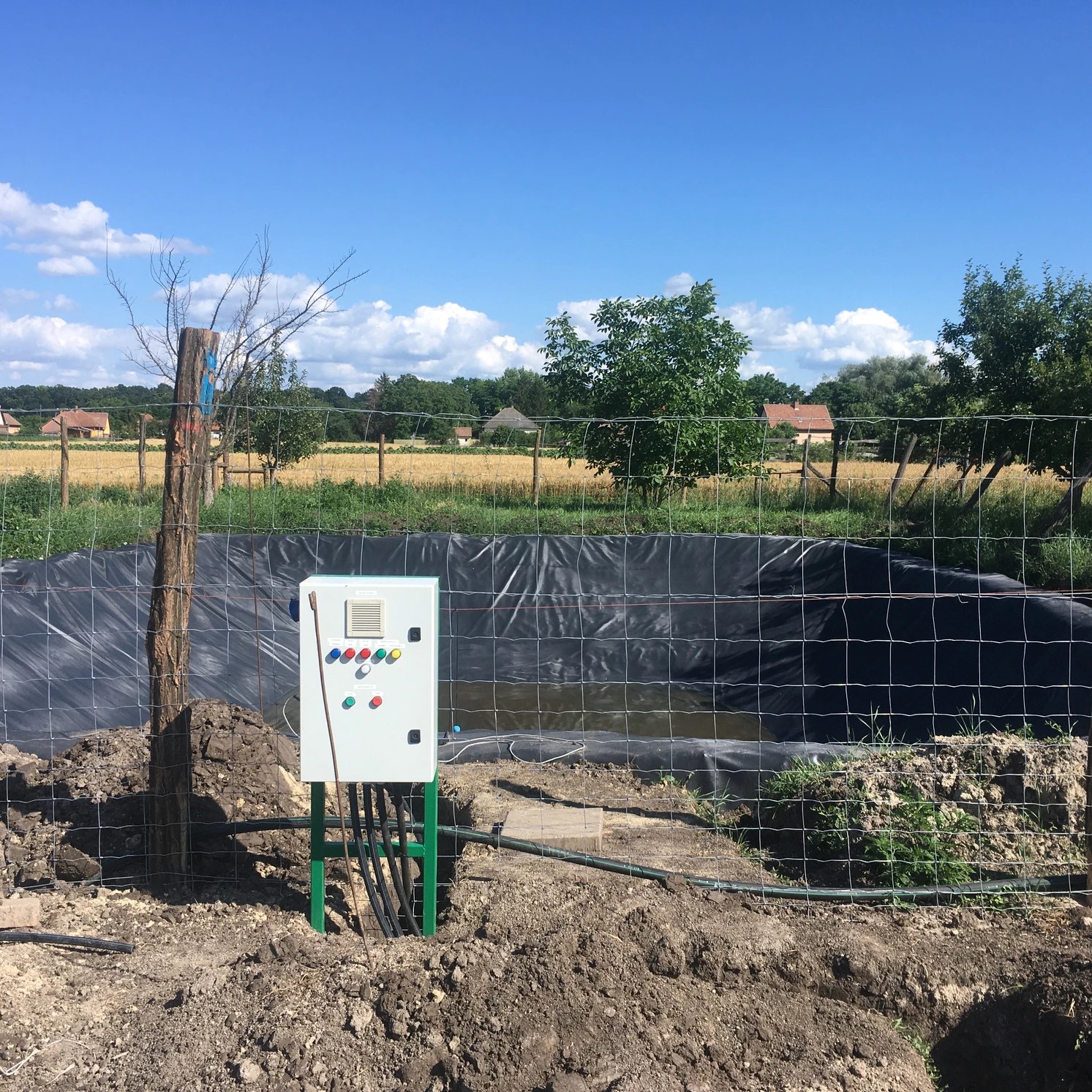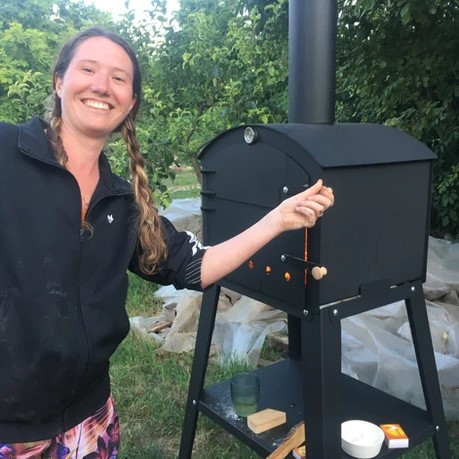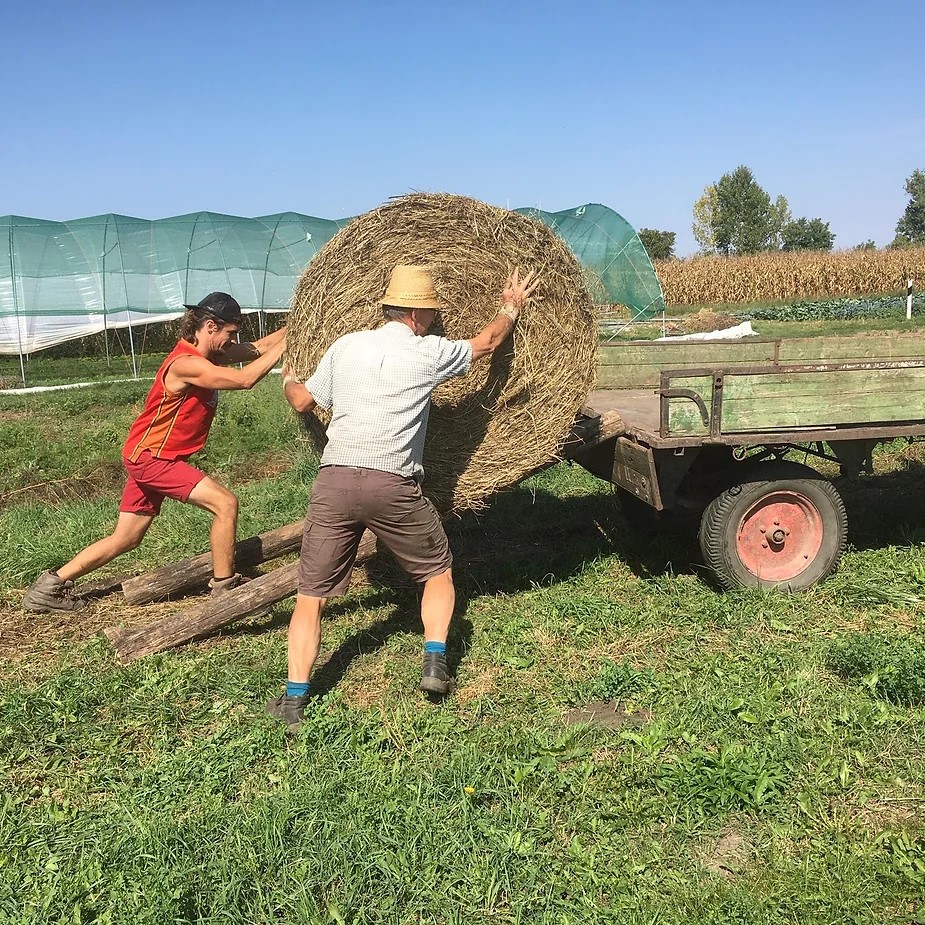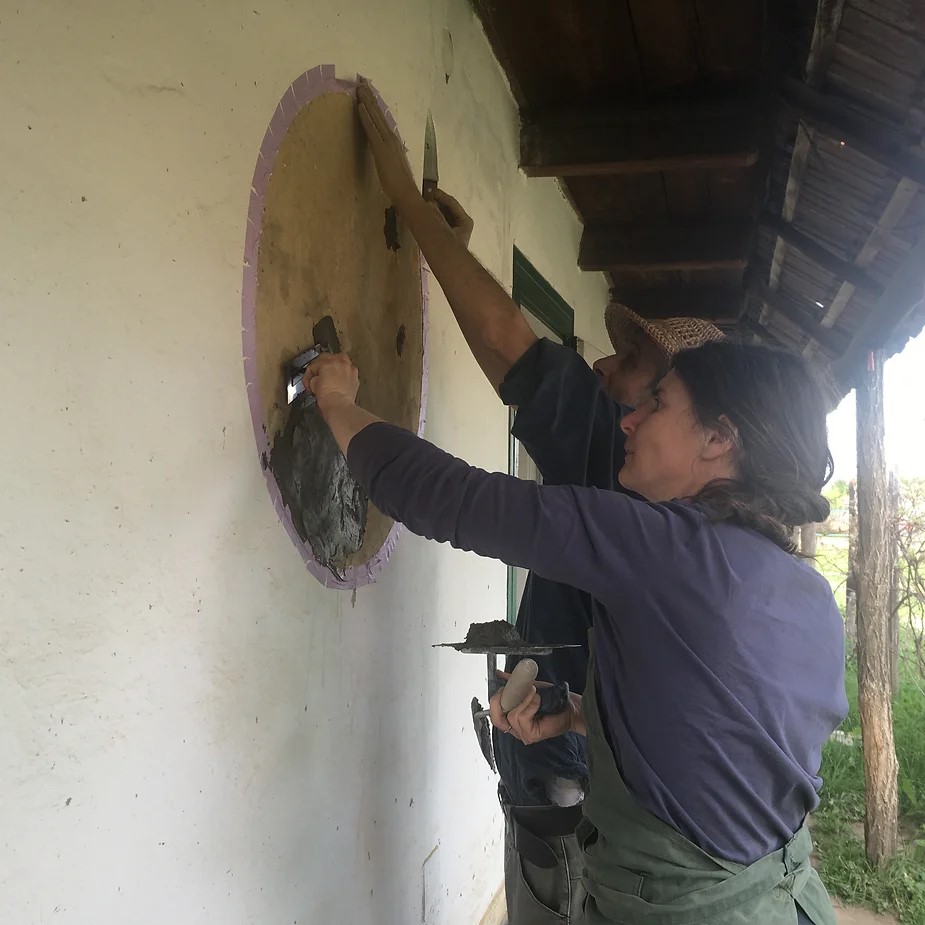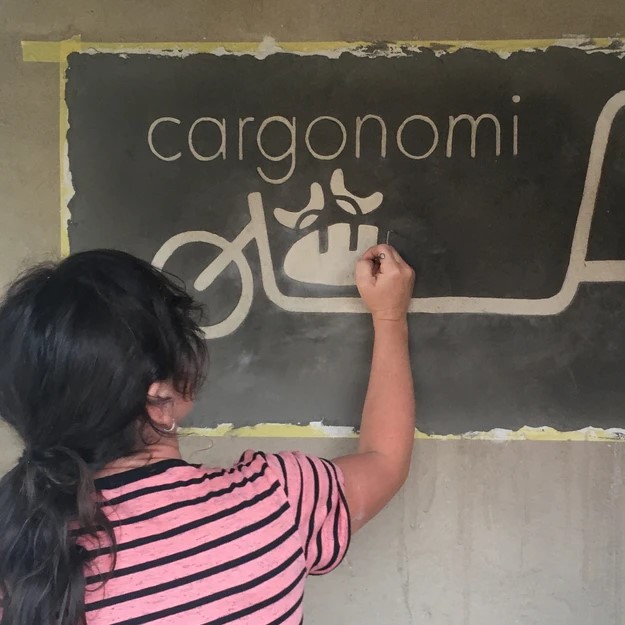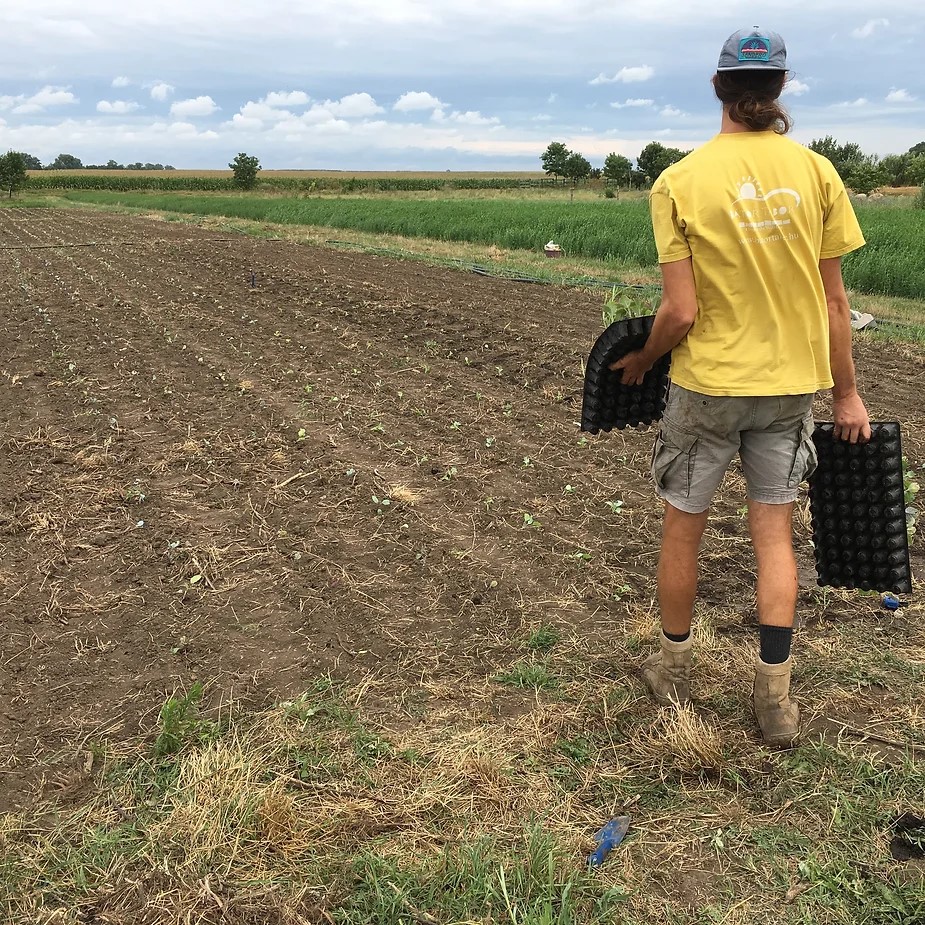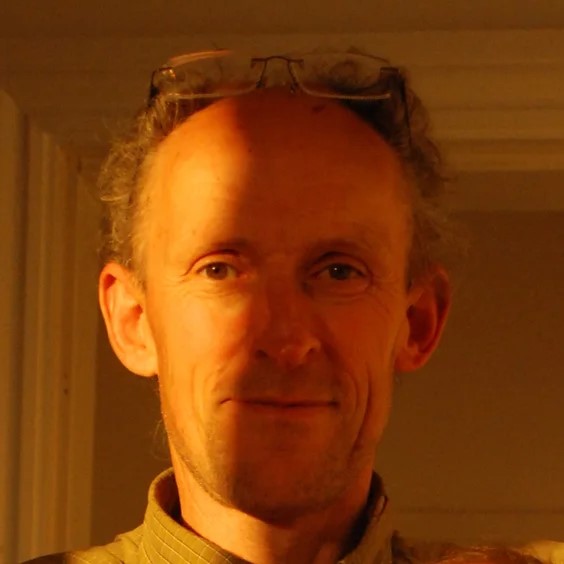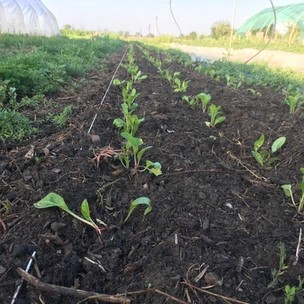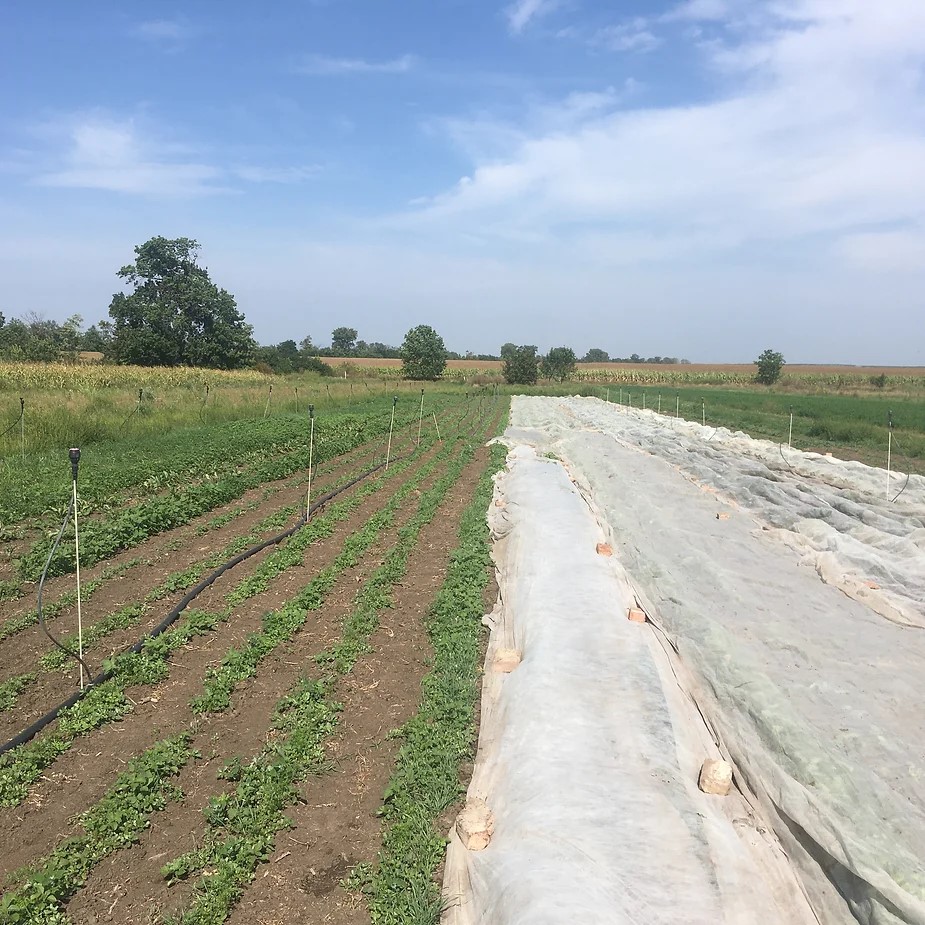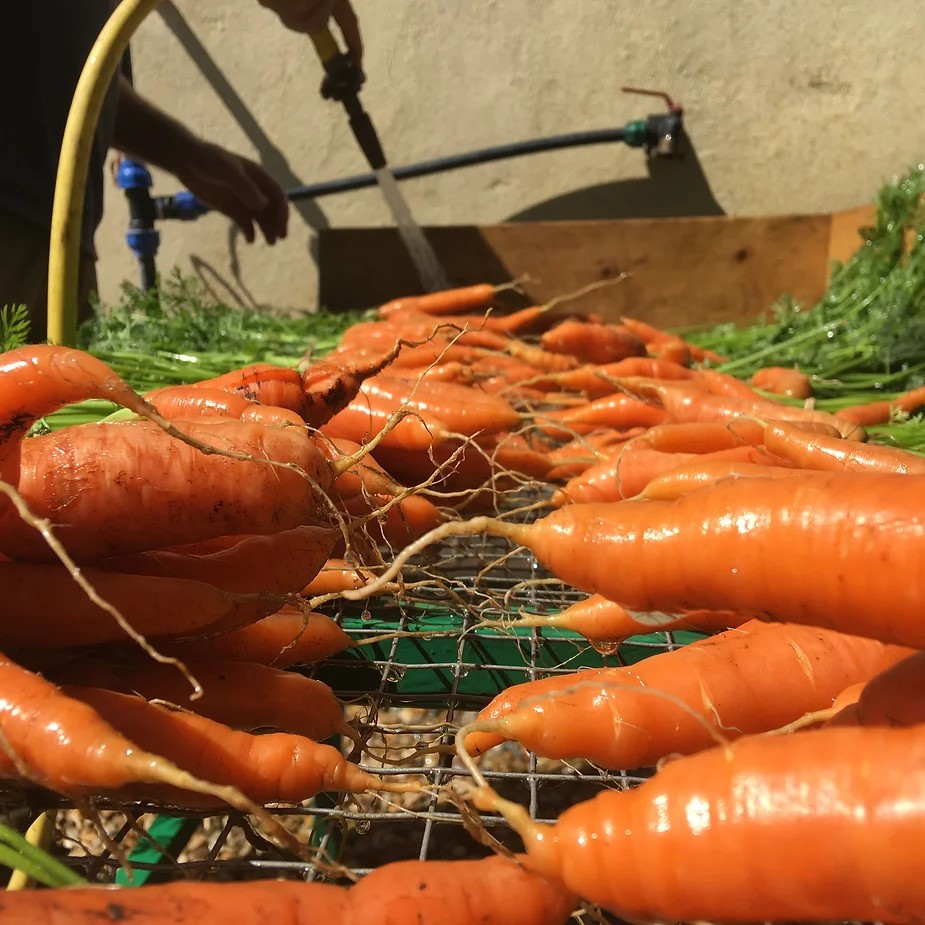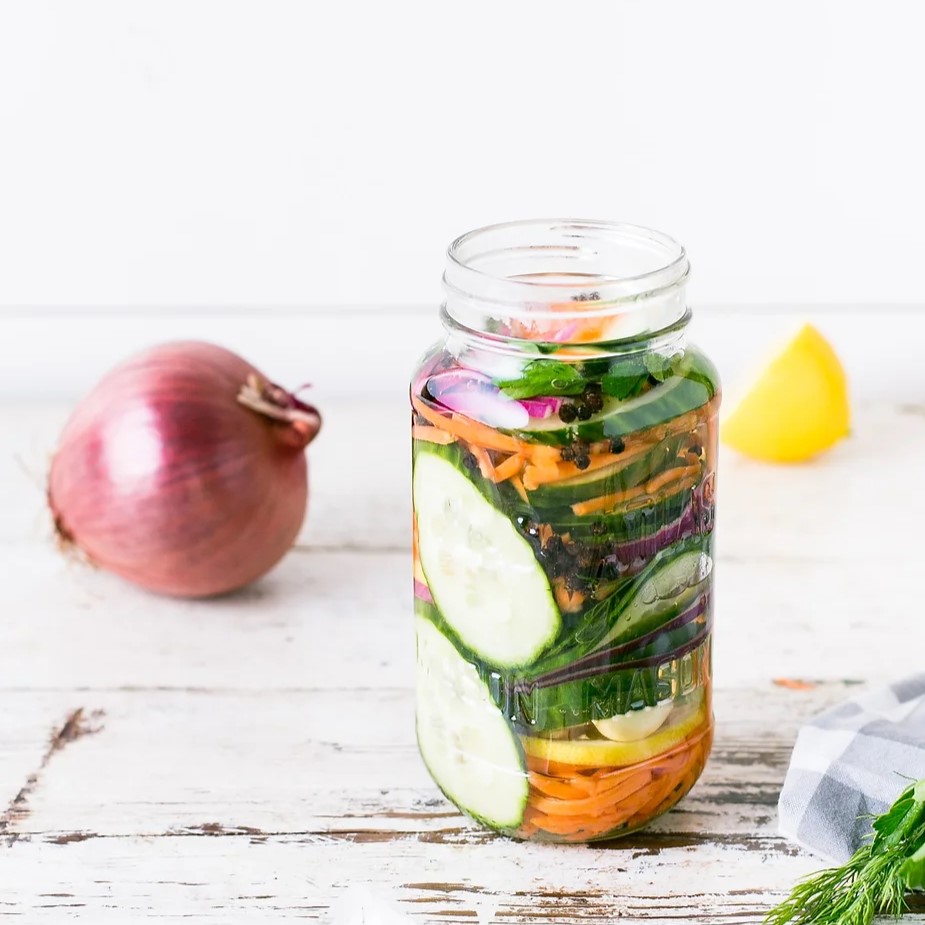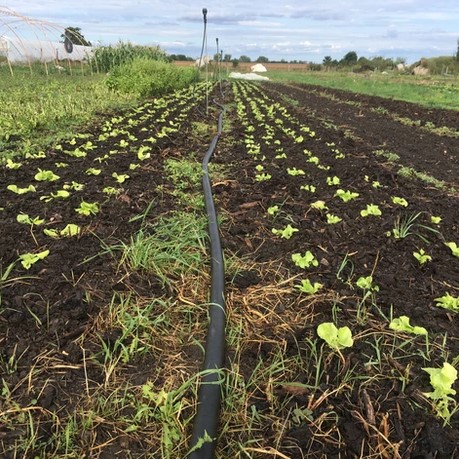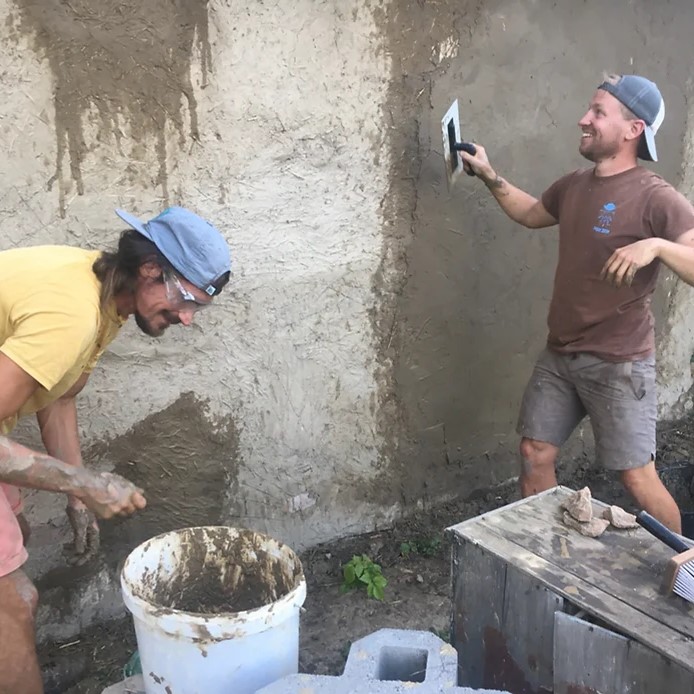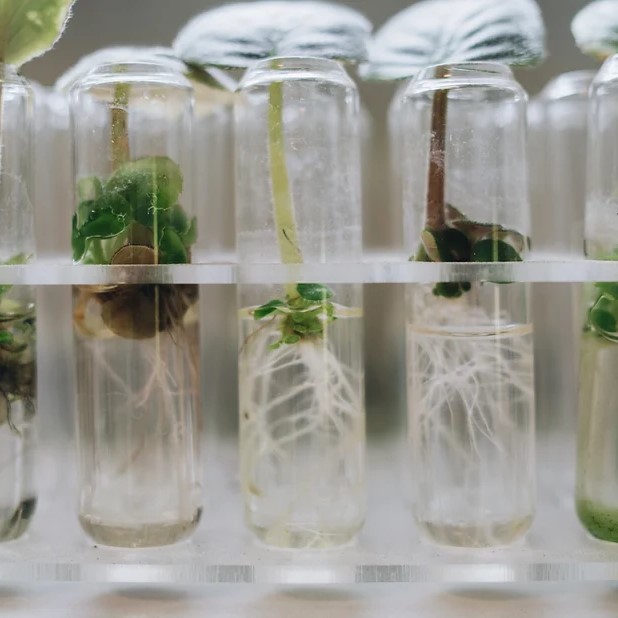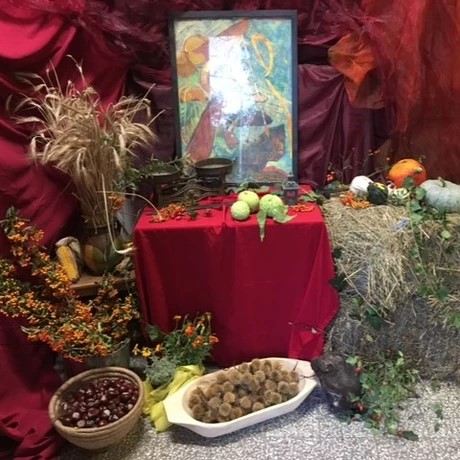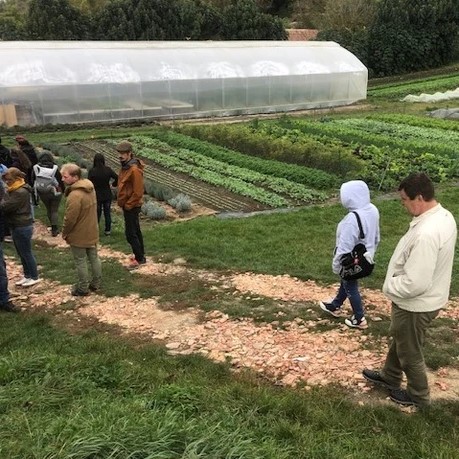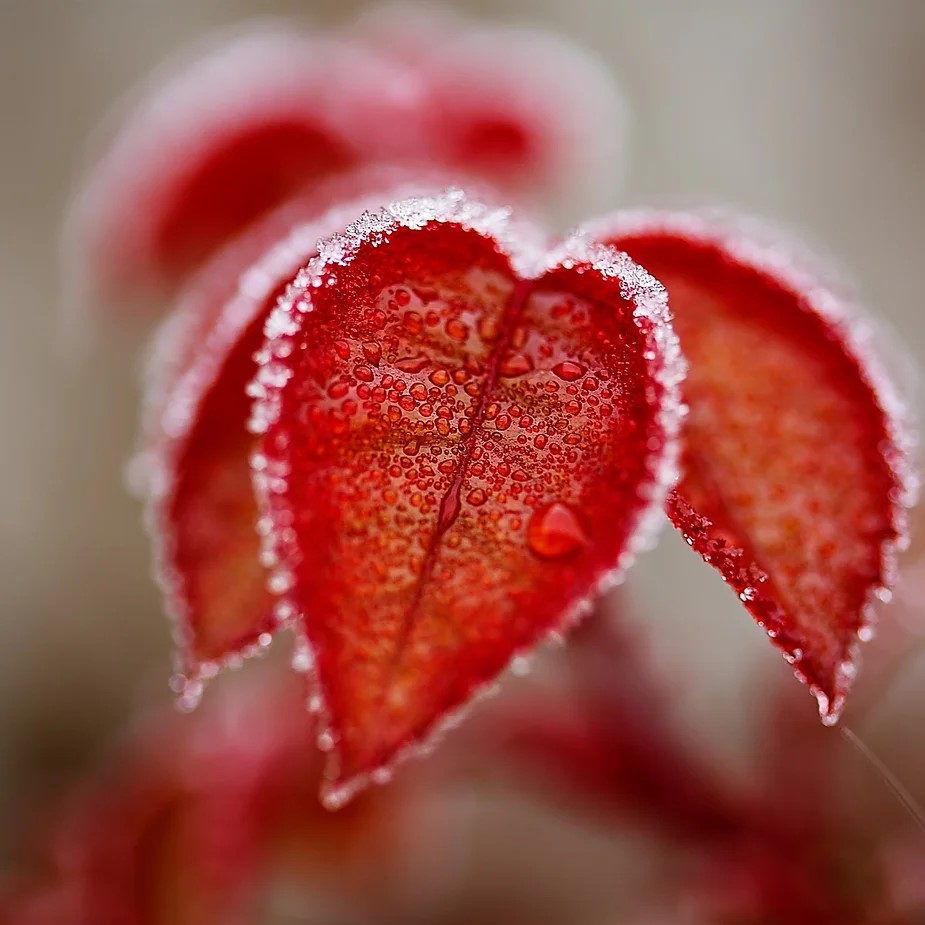Blog
At the weekend Áron and Matthew took another trip to our partner farm in Germany (where Áron worked for many years).
Talking of biodynamics, last weekend a few of us attended the Hungarian Biodynamic Association's winter training.
There is little mention of spices, even though spices are part of a healthy diet, and they are also nutrient-rich plants. It's worth using them with care in the kitchen, we'll write a little about that below.
Published 11.01.2025
We have recently introduced cold-pressed sunflower oils from two organic growers and we also have hempseed, linseed and pumpkinseed oils available in our range. They are all packaged in dark glass jars. We would like to highlight the importance of glass packaging materials as opposed to harmful plastics:
In October we visited Zrno Farm in Croatia. There we saw a lot of interesting things and were inspired to try out a deep compost mulch intensive bed system.
I'm Csaba Marcell Márton, pastry chef, cook, sociologist, fermentor. Fermentation has always been part of my life, my favourite dishes from childhood are stuffed cabbage and pickled cucumbers.
Of the many things going on at the moment, we'd like to let you know that your boxes packed this week were packed in Gödöllő, not at Zsámbok. No, don't worry - nothing fundamental has changed, your weekly organic vegetables still come from the same farms, at the moment most from our own gardens at Zsámboki Biokert.
This is a short review of a recent book on a very relevant topic in the organic movement, ultra-processed foods by our colleague James Atkins.
We are thinking a lot at the moment about how to refine our vegetable production methods, and how to become more efficient (grow more with the same number of people), so we have been looking around for good examples of different production systems. We heard some time ago about Zrno Organic Farm in Croatia, which won the 2022 EU "Best organic Farmer of the year award" (see video link: Zrno organic farm), and this week we were fortunate enough to go and visit the farm as Zsámboki Biokert group of growers and owners.
Bit-by-bit we are working on developing our box system and seeing how we can improve it to benefit you, our customers. These last weeks we have been trying to source a new range of products (last week the Szentábrahami Teas, this week a wider selection of Bioberta products and Simai méz - next week you should already be able to start tasting pastas and other products.
Getting the Szentábrahami Transylvanian tea selection onto our range of products is something Matthew has been wanting to do for a long time. The company has a special connection for him, as co-founder, Wil van Eijsden was a good friend (sadly no longer with us) of his in his early days in Hungary.
It is great to see the garden thriving again after the stresses of the hot and dry months. Csaba and Emese, Kati and Logan and the rest of the team have been working really hard to get the garden back to where it should be.
We had a fun morning this morning. Class III from the Gödöllő Waldorf Iskola came to pick squash from the garden.
Following on from above, you will probably have noticed that suddenly tomatoes disappeared off the shelves in shops, as well as from our webshop - there was a general plague of bugs, particularly the Green Southern Stink Bug (Nezara viridula), as well as a bad year for the catepillar of the Cotton Bollworm (Helicoverpa (Heliothis) armigera) - the combination of which quickly finished off our tomato crop - this increase in insect attacks is widely felt (especially by organic farmers, who don't turn to chemical sprays to control bugs, but rather need time to develop more complex pest and disease control strategies), as a direct consequence of climate change.
Following on from the above, it may be interesting to see the broader picture. Few (rational) people will doubt that we are experiencing climate change in real time - I believe it is accurate to talk about a climate emergency, not because I think we should panic - actually the good reaction is the opposite of panic - This emergency is a long emergency - we are just starting to really see the effects (though this has been predicted for a long time - 40 or 50 years). In the face of a long emergency we need a good plan - a good strategy - for our farm, for our business, and for us as individual, and collective human beings.
Csaba, Emese, Kati, Logan and the rest of the garden team are working really hard at the moment to get beds ready and autumn crops sown. This is a critical period to try to make the most of the last months of the year, while we still have plenty of warmth and light.
Zsámboki Biokert is not about 14 years of age (Matthew moved to Zsámbok in August 2010). Bit by bit we have built up a really solid team of people, who really feel committed to this work and part of the effort to grow Zsámboki Biokert and the highest quality organic food we can manage.
This last week Kati, Emese and the team have been in full manufacturing mode - and have produced a good amount of Lecsó, pesto and aubergine spread.
There is very much a middle of summer feeling in the garden. This means hot, dry, and everyone feeling a certain tiredness.
Just in time for the San Marzano season - a group at the Cargonomia team have built a vegetable and fruit solar dryer. Lucie and Dorota (French and Checzh students) have created a wonderful passive solar drier prepared from 2nd hand timer.
We are coming to the end of this summer's camp season, with the Cargonomia adobe house renovation being a high point.
June and July are our summer camp season. Following the groups of Waldorf School students, we had la Petite Mousqueteers french language summer camp, based here last week, and now this week we have the now regular Cargonomia adobe house renovation summer camp.
This week Matthew had a flying visit to England, to catch up with his eldest son, Kristóf, at the Groundswell Regenerative Agriculture Festival (July 26-27). Groundswell has rapidly become a must in the regenerative agriculture calendar, and famous now internationally. Kristóf over the last years has developed a load of skills and interests which have led him to start up a company focused on new technology for improving soils - both robotic soil monitoring equipment and mobile grazing pens.
This week we had Class 9 from Csillagberek Waldorf School on their farm experience week. They camped in the fruit orchard, and had a week of real farm experience. It was quite a tough initiation into farming for them, as it was intensely hot, and they had to get used to working through the heat.
It is farm experience (mezőgazdasági gyakorlat) time again for a new group of students, this time from Csillag Berec Waldorf Iskola, Új Pest, we have a group of 18 students and two enthusiastic staff members camping on the farm this week.
This week a lot has been going on in the garden. We have had 30 Waldorf School students from class 9 from Göllner Mária Regional Waldorf Gimnázium for their practical farming experience.
Most of the tomatoes and all of the paprika, aubergines and sweet potatoes are now planted out in the polytunnels - but we still have a huge amount of work ahead of us.
This week, as usual, was a busy one in the garden, but we found time on Monday (Whitsun) to go for an excursion into the Buda Hills. Júlia, Kata's sister. who works for the Duna Ipoly Nemzeti Park (and also helps pack our boxes!), led us on a wildlife trial, pointing out some of the natural treasures of the Buda Hills.
We are full-on busy on the farm. Our outdoor potato crop is looking healthy and vigorous - lots of outdoor green crops ready to pick and going week-by-week into boxes (spinach, salad mix, lettuce heads, mángold, new potatoes, spring onions, beetroots, radishes, pak choi, kinai kell, etc, etc.).
On Monday and Tuesday last week Logan, Csaba and Matthew had a special treat - to take part in a two-day workshop run by Jean-Martin Fortier, the undisputed star of bio- intensive market gardening at Magosvölgy Biokert.
We have come to the time of year when many things are happening at once - and although we have the wonderful help of Logan's Cargonómia interns on Wednesdays, and at the moment on Fridays, even so, there are always more jobs to complete than time in the day. However, we are doing really well.
At this time of year we really appreciate the extra help we get in the garden from the Cargonómia interns/students, ably led by our loyal friend and colleague, Logan. This week the interns were hard at work bring compost into the polytunnels, hoeing and hand weeding, planting out pak choi and kinai kel, cutting grass and various other tasks, which support our regular farming work.
We would like to promote an event organised by Remény Farm, on Tuesday 23 April, Lurdy Ház, Budapest. They are hosting Joel Salatin (of Polyface Farm, USA). Joel Salatin is one of the leading voices in the regenerative organic farming movement.
Already last year we planned to modernise one of our tunnels, to automate the ventilation - this week a team of people arrived to install roof shutters and automated ventilation, which shoul help to optimise the growth of some of our crops. This season our pepper plants will benefit from the modernised tunnel, so we look forward to a bumper crop of various pepper varieties.
We have for several months now been planning the expansion and development of our organic food box system. Over the next month we plan to introduce new products and improve our customer service.
This week Csaba and Logan prepared ridges for the first outdoor rows of potatoes (together with Sári's help). Potatoes, once they are in the ground take 2-3 months to grow, but we should have earlier new potatoes from the polytunnels around the end of May.
Week-by-week we make some progress with plantings and sowing outside, though the regular rains have slowed us down a bit outside. The stars of this week are the wild plum trees in flower.
I very much hesitate from criticising the weather in any way, as after the drought of two years ago, we are hugely grateful for rains ... however, rains at this time of year do definitely slow us down with our outside work. We have been making good progress with preparing beds and areas for planting.
As well as work going on in the tunnels (hoeing, weeding and harvesting), we are starting to prepare outside beds and work with Sári (ló) to start loosening the soil in a few areas where we plan some later sowings and plantings.
This week Emese and the rest of the team began early sowings in the propagation tunnel (palántazó) - this includes a good selection of salads, brokkoli and other brasscias as well as onions - some of these take weeks others months to be ready, but happily the hotbeds in the propagation tunnel are firing away, so hopefully all seedlings get off to a good start.
Obviously, the loss of our beloved van and its contents was a big blow to us. To look on the positive side, an extraordinary event like this gives us an opportunity to reflect and review our core values.
We finished the hotbeds in the propagation tunnel this week, the temperatures are really starting to rise; we're receiving our orders of seeds and the weather is getting milder. With the arrival Candlemas Day on 2 February, we can be be absolutely certain that spring will soon come!
Talking of the gut microbiome, it is fascinating to see the links between the human gut microbiome and the soil microbiome, as so many of the processes are analogeous for health soil as for a healthy gut, and some of the same microbes are to be found in healthy soil and healthy guts.
Having just returned from our first Saturday morning market at MOM Park for the new year, it always brings a sense of hope (and a little apprehension). The very direct, face-to-face meeting with customers at a traditional style market is always welcome, and we look for ways to build this kind of connection into our relationship with you, our box customers and associates.
This holiday period has been a restful, yet active one for us. Most of the team have been enjoying time off, to rest, travel, and do the things which bring each of us happiness.
One of the most popular members of our team - Sári Ló - has had a rough couple of weeks. Sári has been a very loyal member of our workforce for over 10 years, and everyone loves to be around her.
"O Dark, dark, dark,
They all go into the dark,
The vacant interstellar spaces"
(Four Quartets - TS Eliot).
This week I was lucky enough to have a couple of conversations with Tóth Krizstina (who anno started and managed the Gödölye - A Kicsi Szép Shop in Gödöllő). Krisztina shared with me the interesting idea that we can compare the nutritional logistics of what goes on in the soil, as an exchange of information and nutrients via the complex web and interaction of fungi and bacteria with plant roots, which could be a guide or template for us in our food systems.
Kati has been working magic in the processing kitchen to get our first batches of saukeraut ready, while Csaba and Logan have started to work on a new system for the internal covers we use for winter cropping in our polytunnels.
This week's rains are welcome by us. As soon as it starts to rain people tend to get a distorted idea of how much it has rained.
Great to have plenty of rain again this week, and still lovely, mild weather. This is all good for the growth of the vegetables in our garden.
Last week I attended an event hosted by the Linnean Society which explored two contrasting approaches to achieving this goal: Land Sharing and Land Sparing.
In last week's newsletter I introduced the land sharing/land sparing theme and we sent out an article by the UK Royal Society. The article gave a western European perspective, and we also need to bear in mind that the Royal Society is a hallowed establishment institution (representing to an extext some vested interests).
Following on the land-sharing/land-sparing theme we introduced last week, I would like to examine rewilding:
Re-wilding is an approach to "managing" land areas which is gaining popularity.
As a final offering on the land-sharing/land sparign debate:
Land sharing on the other hand allows an a co-existence of food production and biodiversity, which if well balanced can continue indefinitely providing both rich natural habitats and productive farming.
We were part of the organising group for the second national winter gathering for organic-regenerative farmers and growers. Last year we held this 2-day event in Hajdúnánás, this year in Jászfényszarú. The aim of this event is to strengthen the organic-regenerative farming movement in Hungary and as farmers and growers to share our experience, knowledge and at times wisdom with each other.
Strengthening biodiversity on our farms:
This is something the EU (New Green Deal) is encouraging all farmers to do through some environmental support subsidies, but these have not really kicked in convincingly in Hungary.
How to farm long-term without burning-out? Sooner or later this is a question every professional farmer or grower has to face.
For the workshop on Intensive organic vegetable production we had two presentations: 1. Pecznyik Béla telling the story of his farm (Pecznyik Tanya Ökofarm), and Balamodaka from Krisna-völgy - two very different vegetable production systems (unfortunately Bolvári Csaba was ill and unable to bring his presentation).
In February I travelled for a week to the UK (Matthew) - unfortunately returning home to be ill, and bring the rest of the family down with me. This means having to turn inward - blind to the slow change in season, rather focused on imagining the longer term future of the garden.
We are pleased to report that spring has begun in the garden and we are well into the early work of the season.
Last week many people heard the accident involving many vehicles on the M1, caused by poor visibility because of a "dust storm". To be honest, I don't follow the media so much, so I am not quite sure what was reported, but it is clear that this incident can be traced back to (poor) farming practice.
The European Union gets a lot of bad press, but on environmental issues I think it is fair to say that the European Green Deal offers some pretty ambitious targets (at least 55% carbon emission reductions by 2030, and a carbon zero EU by 2050). Soils have been highlighted by the EU as an essential part of the Green Deal strategy, setting up the EU Mission for Soils.
Last week we discussed the central role of the plant in soil health. The Soil Food Web clearly demonstrates that the plant, microorganisms in the soil (the soil microbiome), other living creatures in the soil, as well as organic matter and the mineral elements in the soil together with water and air all work as an interrelated whole to maintain soil and plant health.
Last Sunday was our first in the current growing season of monthly open days. We want to apologise to everybody who experienced any incovenience around the registration.
This is a bit of a special period for us at Zsámboki Biokert, as Matthew, Kata and their children have gone over to the UK for a week to a big family reunion, whilst Csaba, Emese, Kati and Logan are looking after everything which needs doing on the farm.
Kata and I have been on a family reunion in England this week, and it was interesting (and a bit saddening) to see the farming practice. We stayed in mid-Suffolk, which is part of the English "alföld"- with large arable fields (not dissimilar) to the farming practice around Zsámbok. Whilst there were plenty of birds and bees, with hedgerows and trees blossoming, the state of the water courses was depressing.
This last weekend (Sunday 7 May) we had a fun open day at Zsámboki Biokert. The turnout was smaller than the April open day, but it looked like everyone enjoyed themselves.
We would like to recommend the film "Strawberry days" - a feature film available on Netflix which alongside the main story (Romeo-Juliet type love story), the background setting is large scale conventional strawberry production in Sweden.
If there is a single crop which represents the turning point between spring and summer, and a firm favourite in people's memories of halceon days in their past, fresh garden peas are that crop. There are of course peas and peas. Today most people know the garden pea as a green berry which arrives in their kitchen frozen in a plastic wrapping. This represents I guess 98% of peas produced worldwide. However, the fresh garden pea, grown small-scale and lovingly-shelled and lightly cooked at its freshest peak, still has a place in many peoples hearts.
This was the second week of farm experience for the Regionális Waldorf Gimnásium, Class 9.
After last year's extreme (hot and dry) summer, we have had to rethink our water supply system, and for the last 2 months we have been very involved (up to our necks you could say) in water issues. We had a new water storage pond dug out a couple of months ago, and lined with a pvc liner a month ago.
This week we had another few groups passing through the farm. We had an extremely well organised French language summer camp organised by Marion (Le Petite Musketeer) and Logan (Cargonomia-Zsamboki Biokert).
We have been enjoying very clement weather this spring and early summer, with regular rains, and (until now) not extreme temperatures.
This week we are looking forward to plenty of visitors arriving to Zsambok, not this time to our garden, but to join the traditional house restoration summer camp organised by Logan (and Cargonomia).
This week we hosted the Cargonomia adobe house building and restoration camp.
For those of you interested in the more holistic, philosophical fundamentals for agroecological and regenerative farming, I recommend listening to the podcast conversation between John Kempf and Charles Eisenstein.
We have been preparing ground for our autumn crops and winter storeable vegetables (such as carrots, beetroots, cabbages). We have invested in some modern, small-scale weeding equipment - probably the first of its kind in Hungary.
This week work was full on to make sowings for autumn crops (coriander, rocket, salad, radicchio, radish, chinese cabbage, spinach).
This week on the farm was dominated by clearing up our summer sown cabbage and carrot.
A lot of the week was spent weeding the carrots, to get the recently sown crop really clean (= free of weeds) to maximise growth.
We’ve been thinking and reading a lot about the gut microbiome recently. What it is. How it helps us. What it needs to be healthy.
September is the second spring I love so much. After our end of summer/autumn sowings and plantings, the garden once again looks fresh and full of new life.
This week the back of our office building has had a facelift. We love valyog buildings, and one of the great benefits of valyog is that it is 100% recyclable.
GM food, hybrids and open pollinated varieties - what is the difference? Is there a difference?
Talking about seed varieties is a bit of a hornets nest, as people often have very passionate opinions about this very complex subject, and the devil is very much in the detail. Is there a place for GM foods in organic production?
It is worth stopping for a moment at this time of year to reflect on where we are. This is traditionally the harvest festival time. Michaelmas is the christian and probably pre-christian festival most connected to the harvesting time of year.
Last week we had our annual team excursion, when we all get away from the farm for a day, and see how other organic growers do things. This year, we visited 4 different market gardens, all operating some form of CSA (community support agriculture) sales system. This is where consumers buy "a share of the season", committing themselves to buying regularly for a whole season, to offer some financial security to the farmer.
We were taken a little bit by surprise by the two frosts early in the week, as these hadn't been predicted, at least on the weather site we regularly check. We were a little bit caught off guard, as not all of our vulnerable outdoor crops were covered, but the only real casualty was some romaine lettuce.

